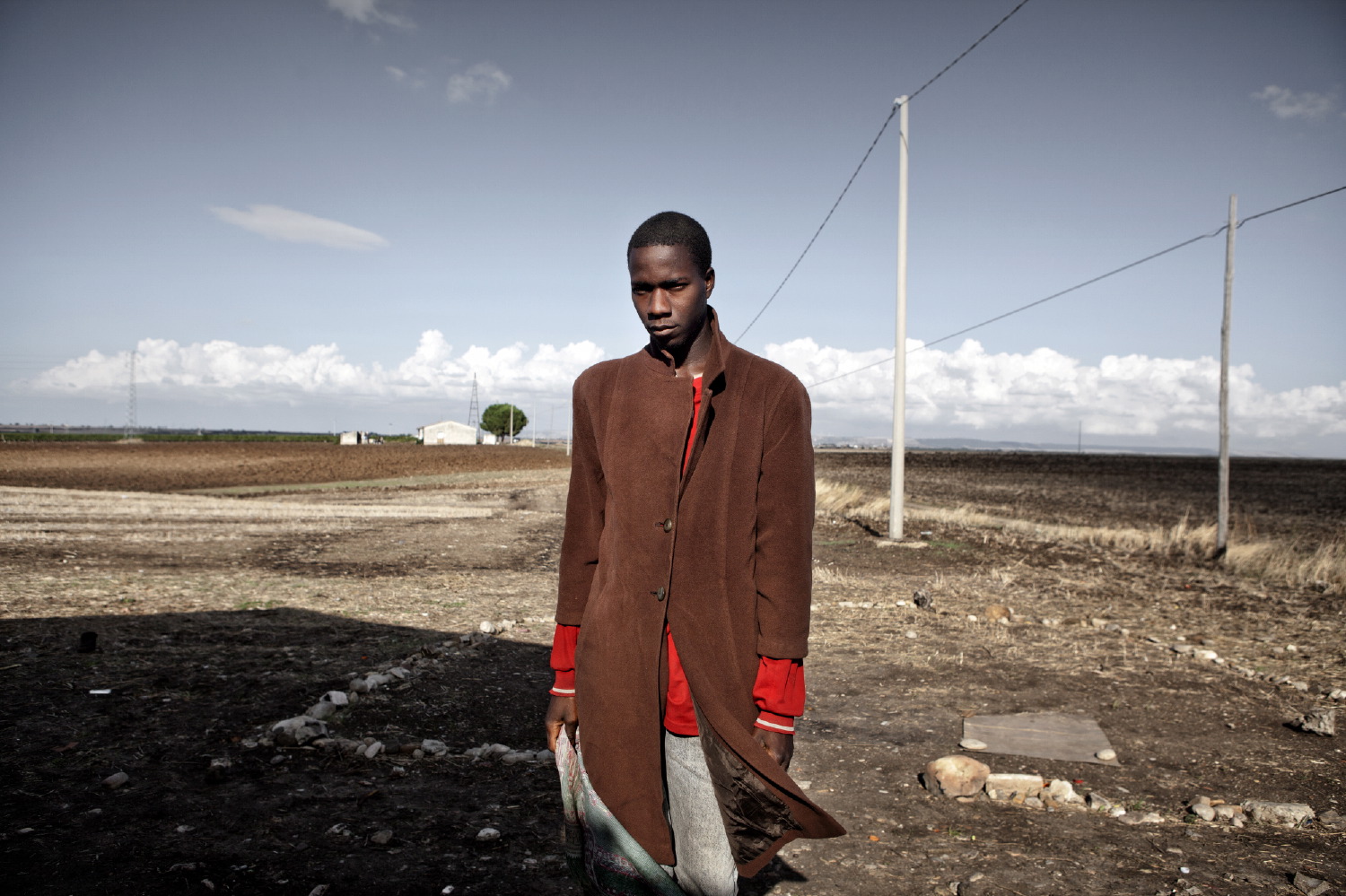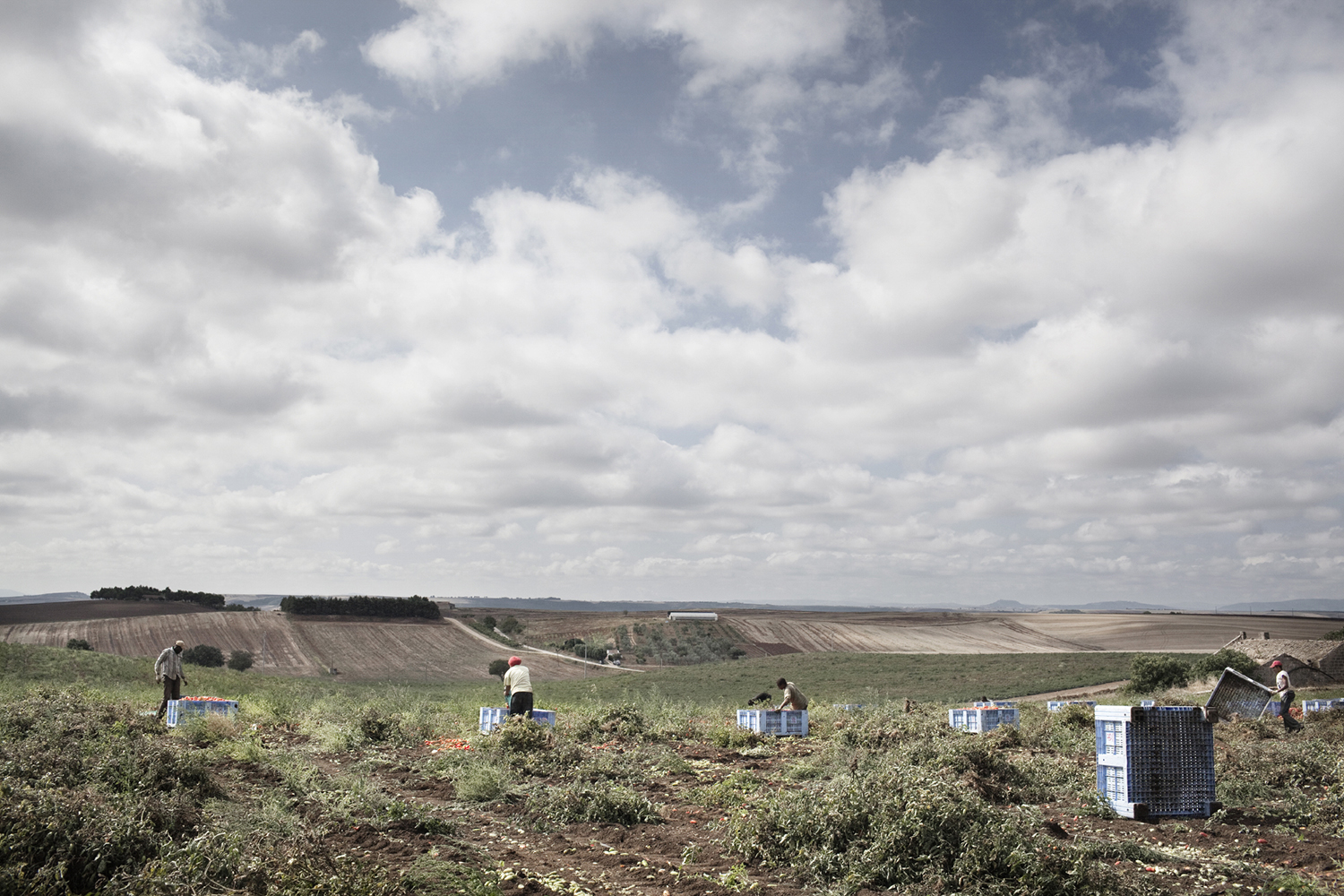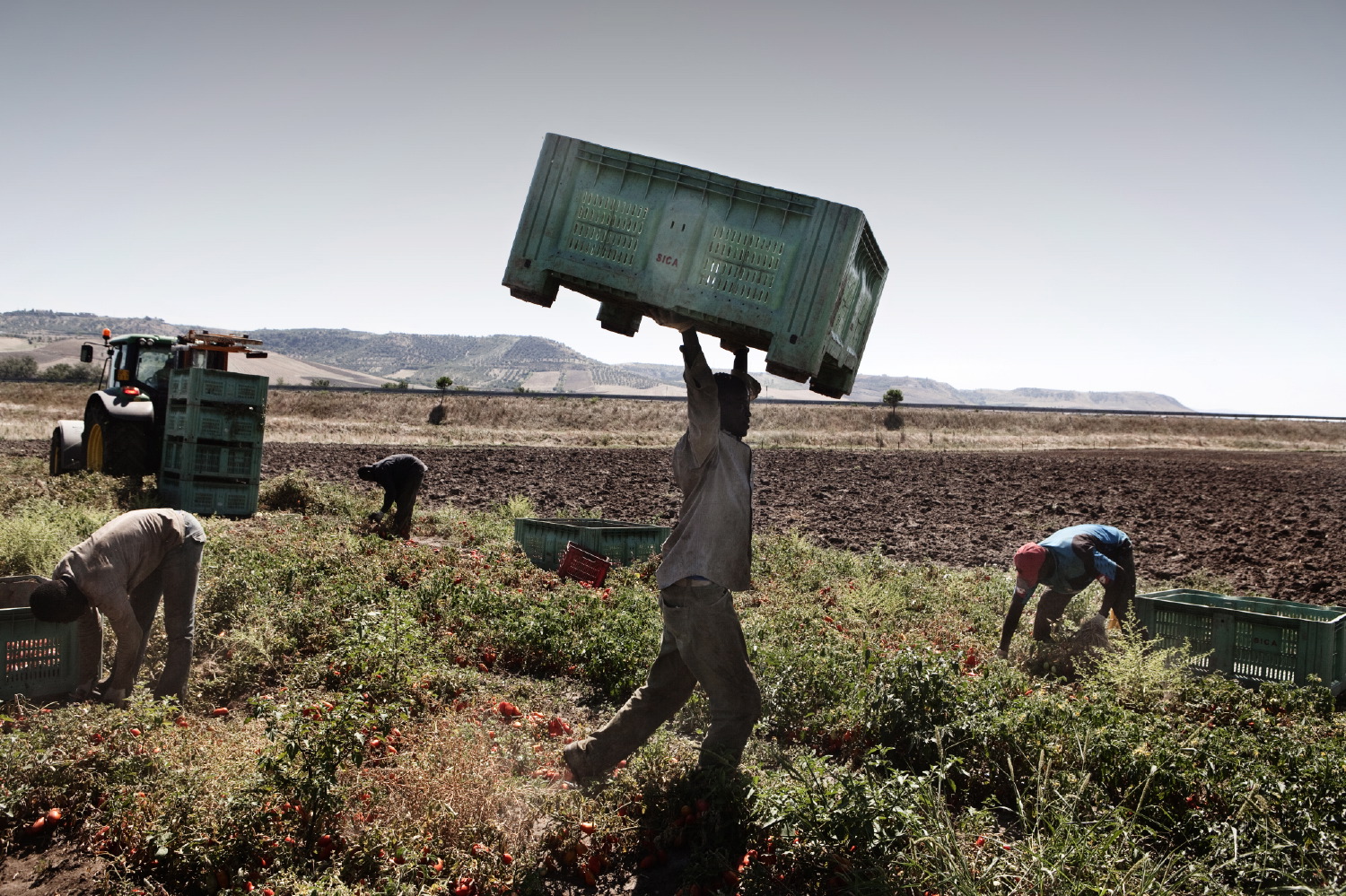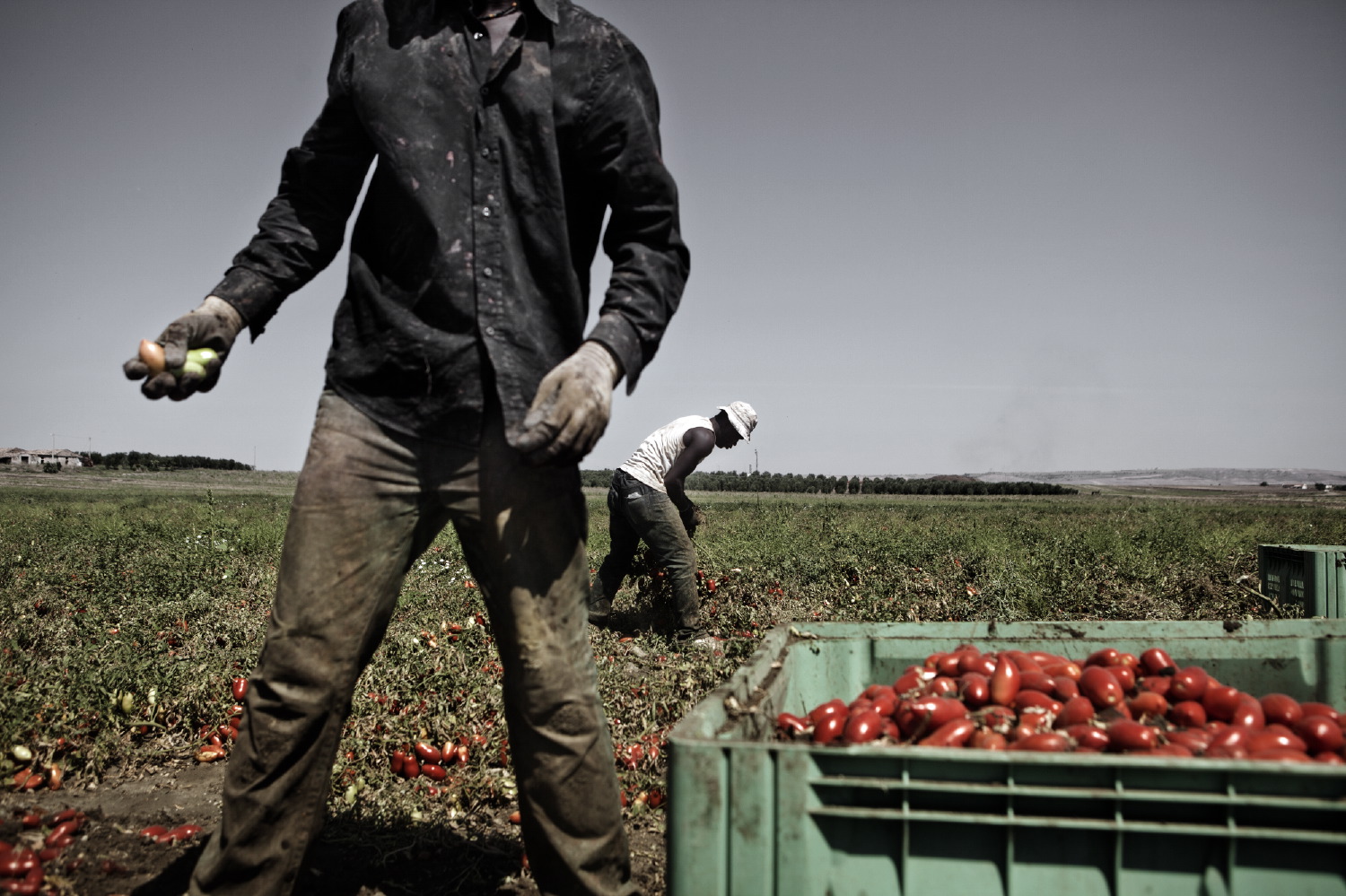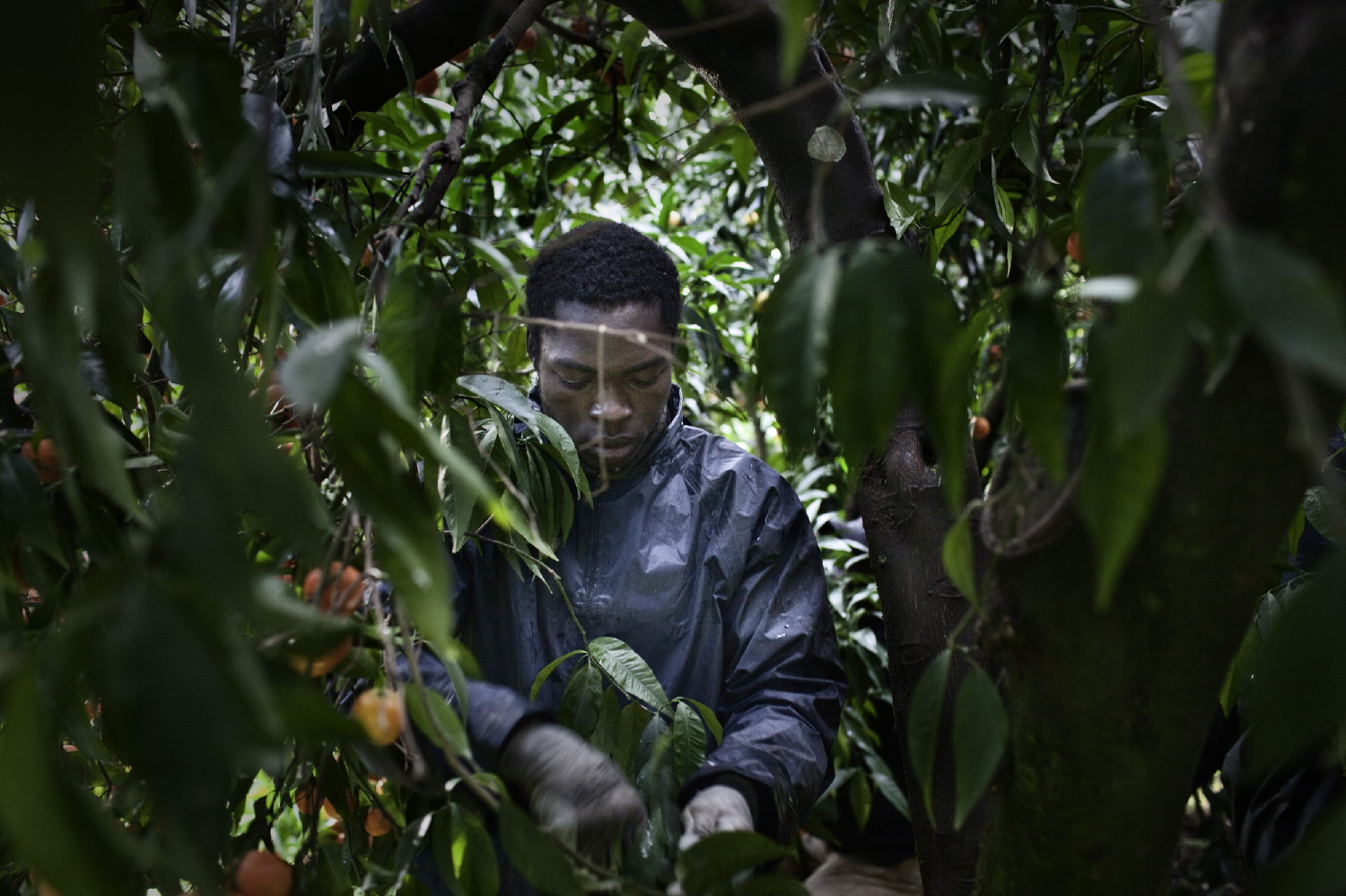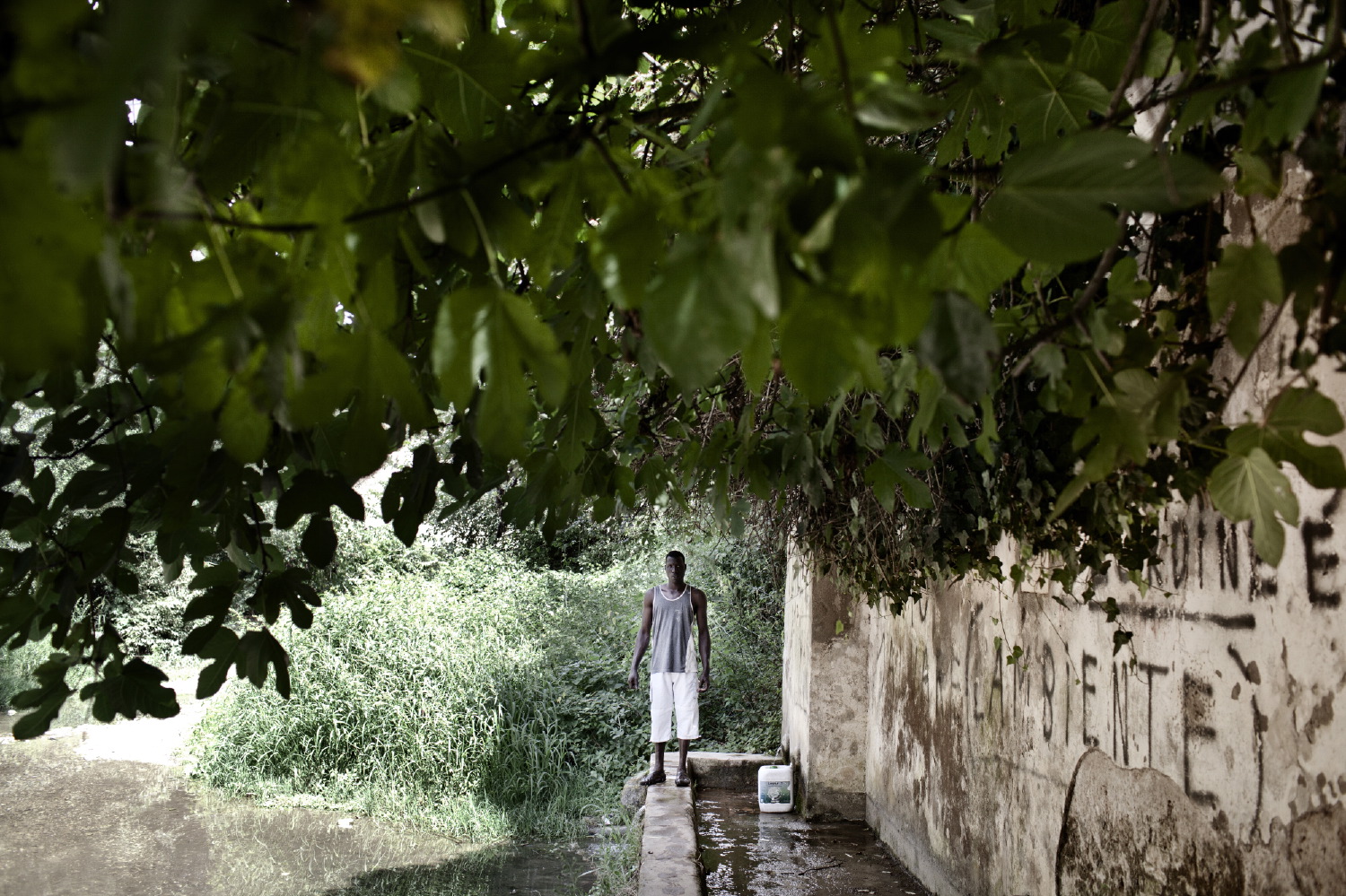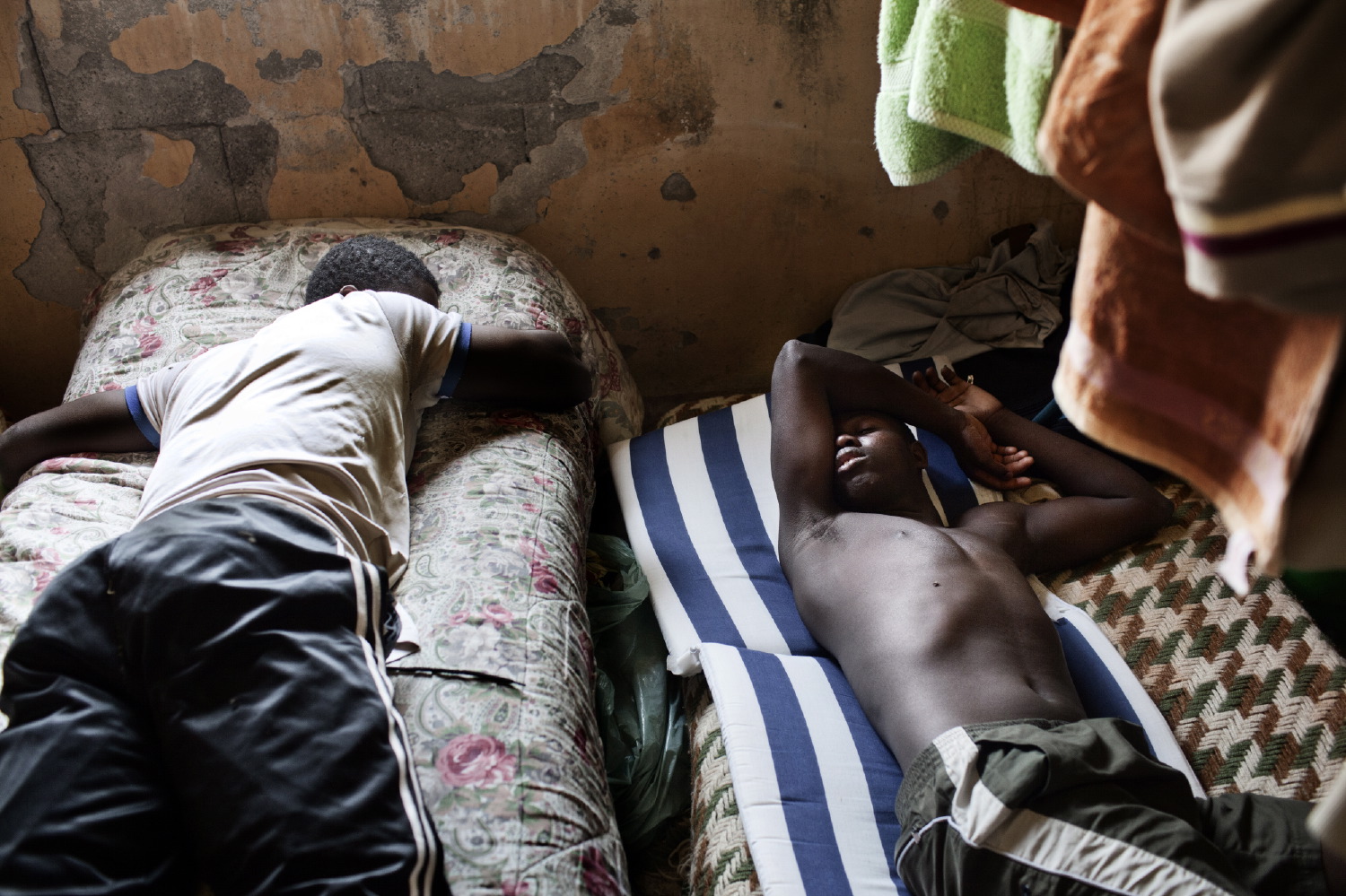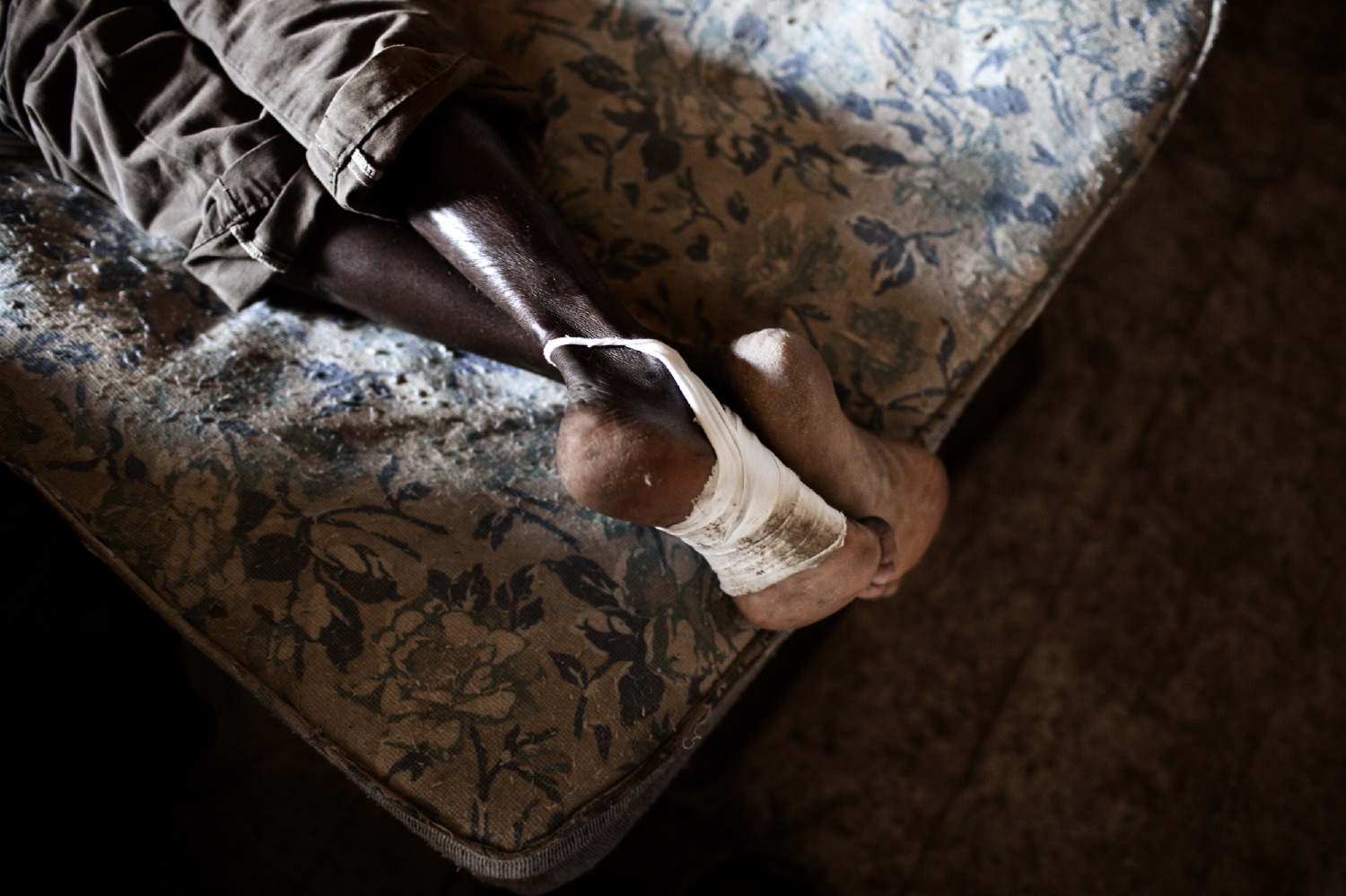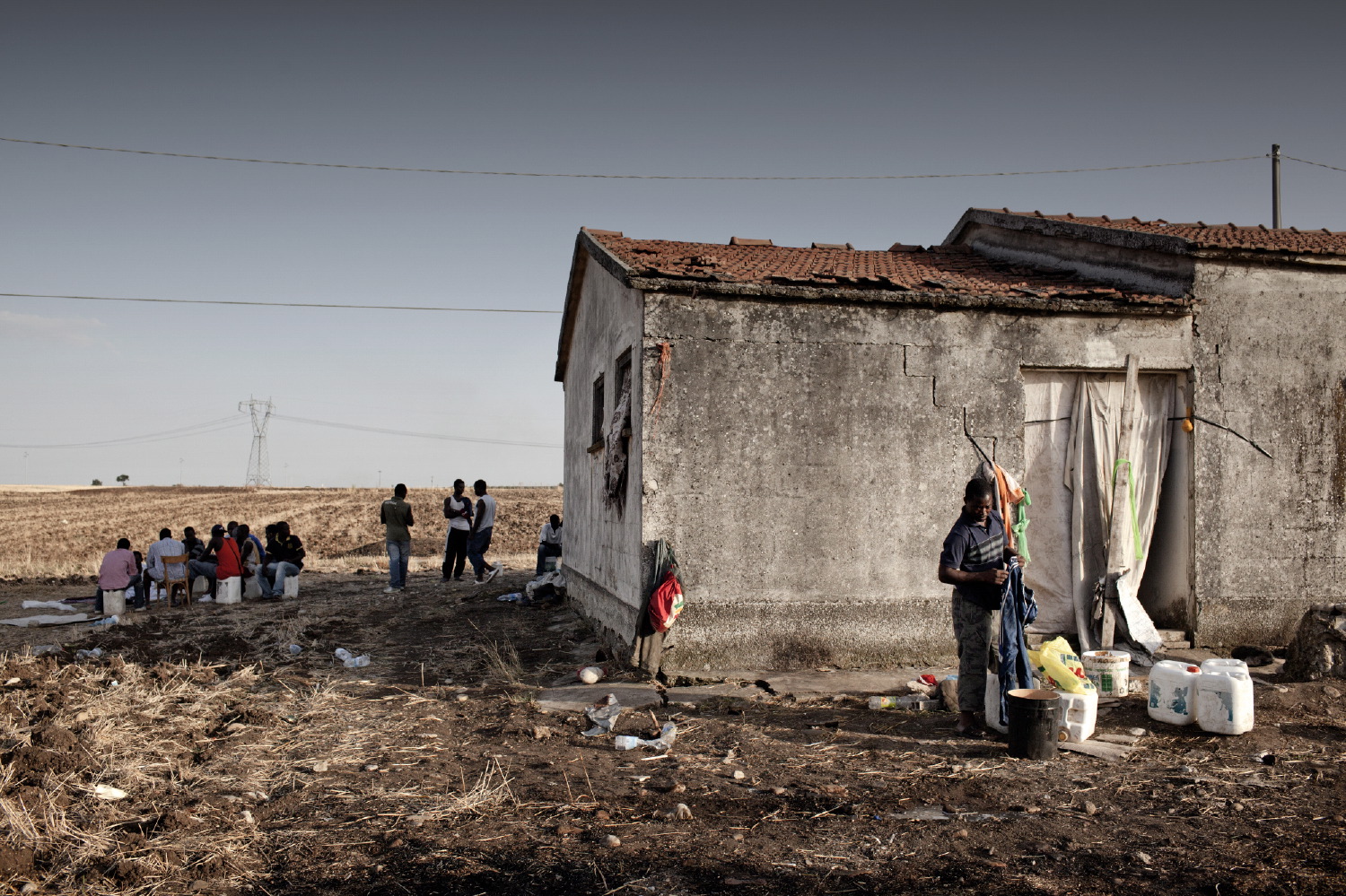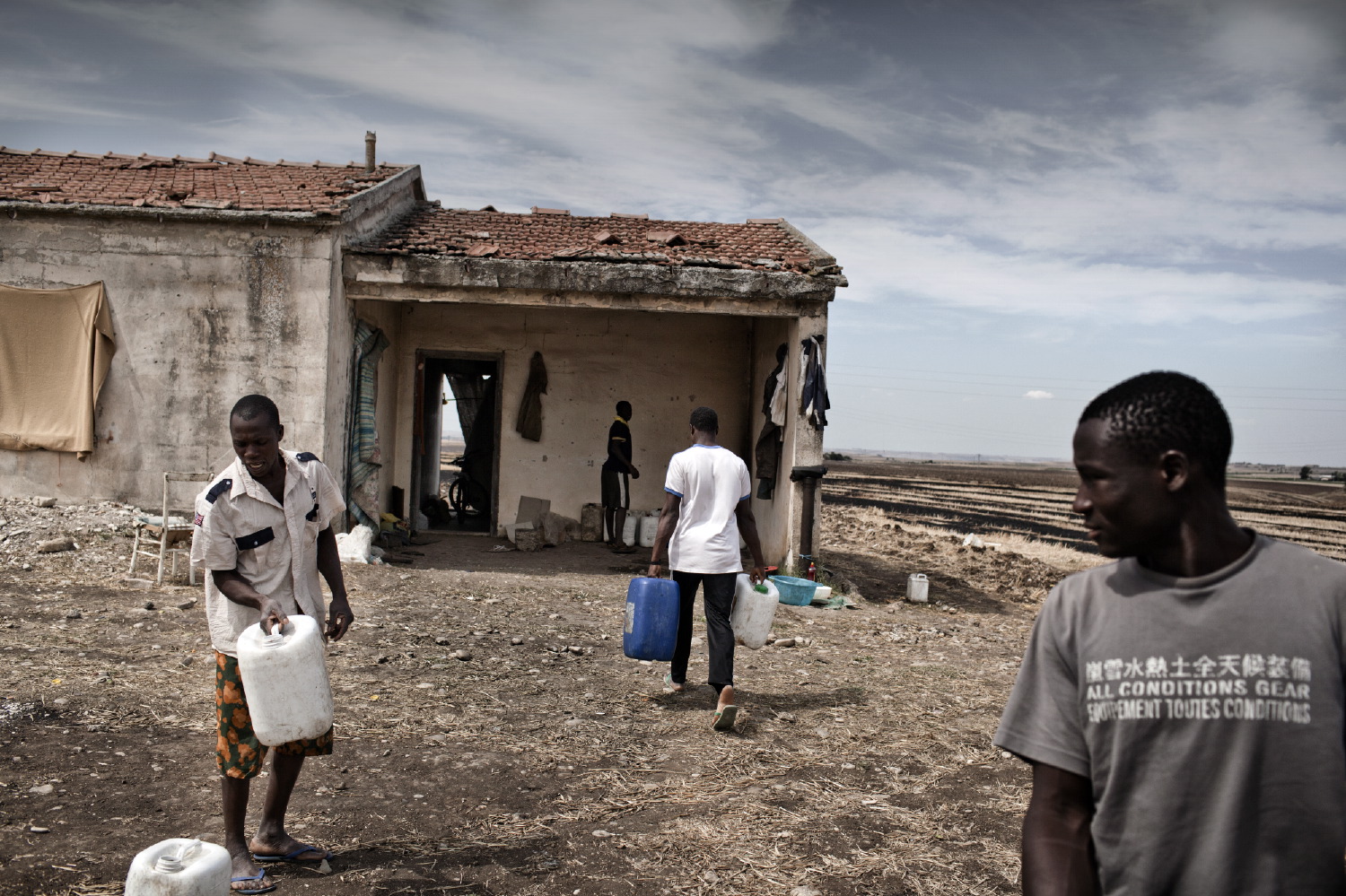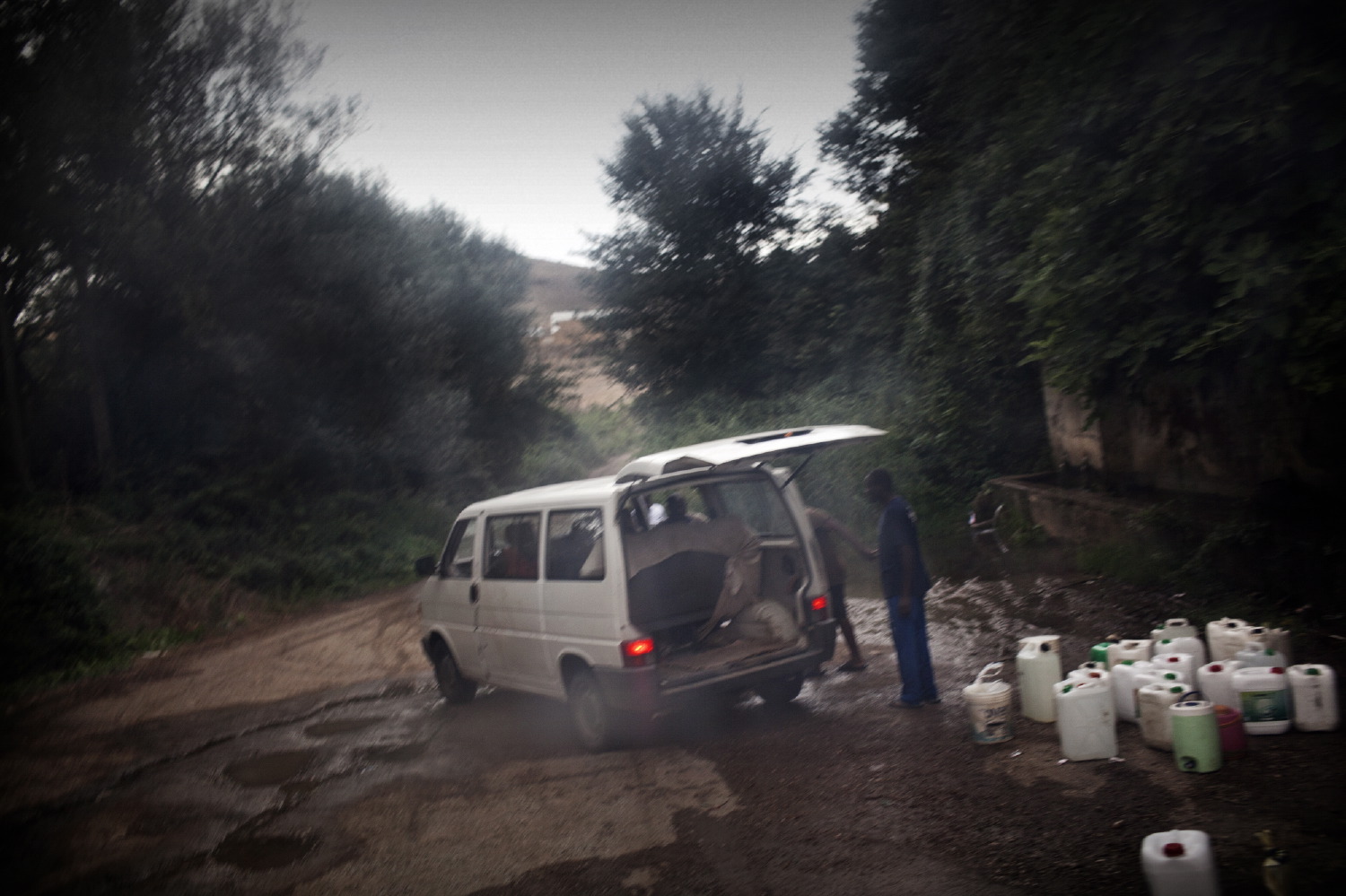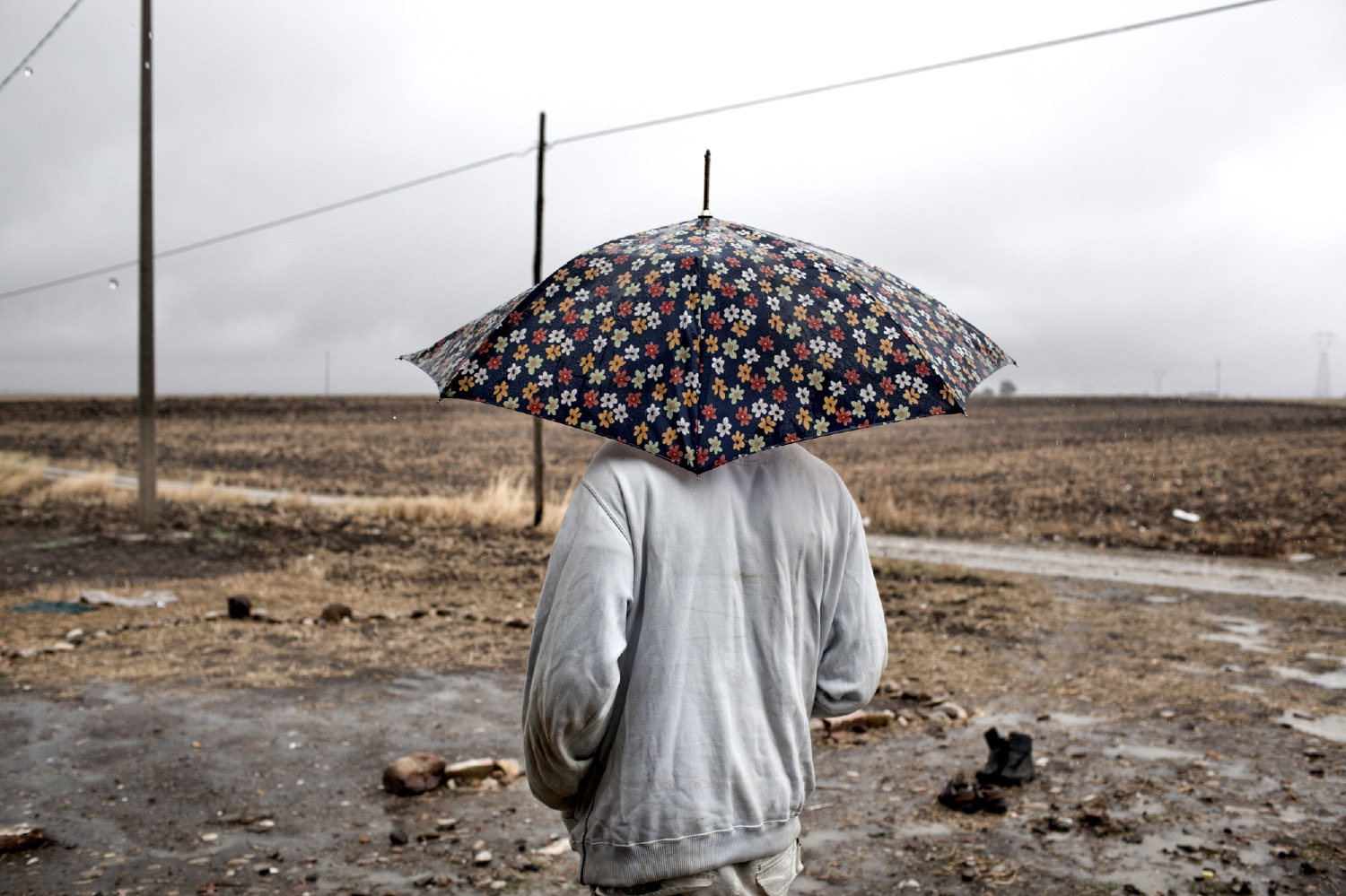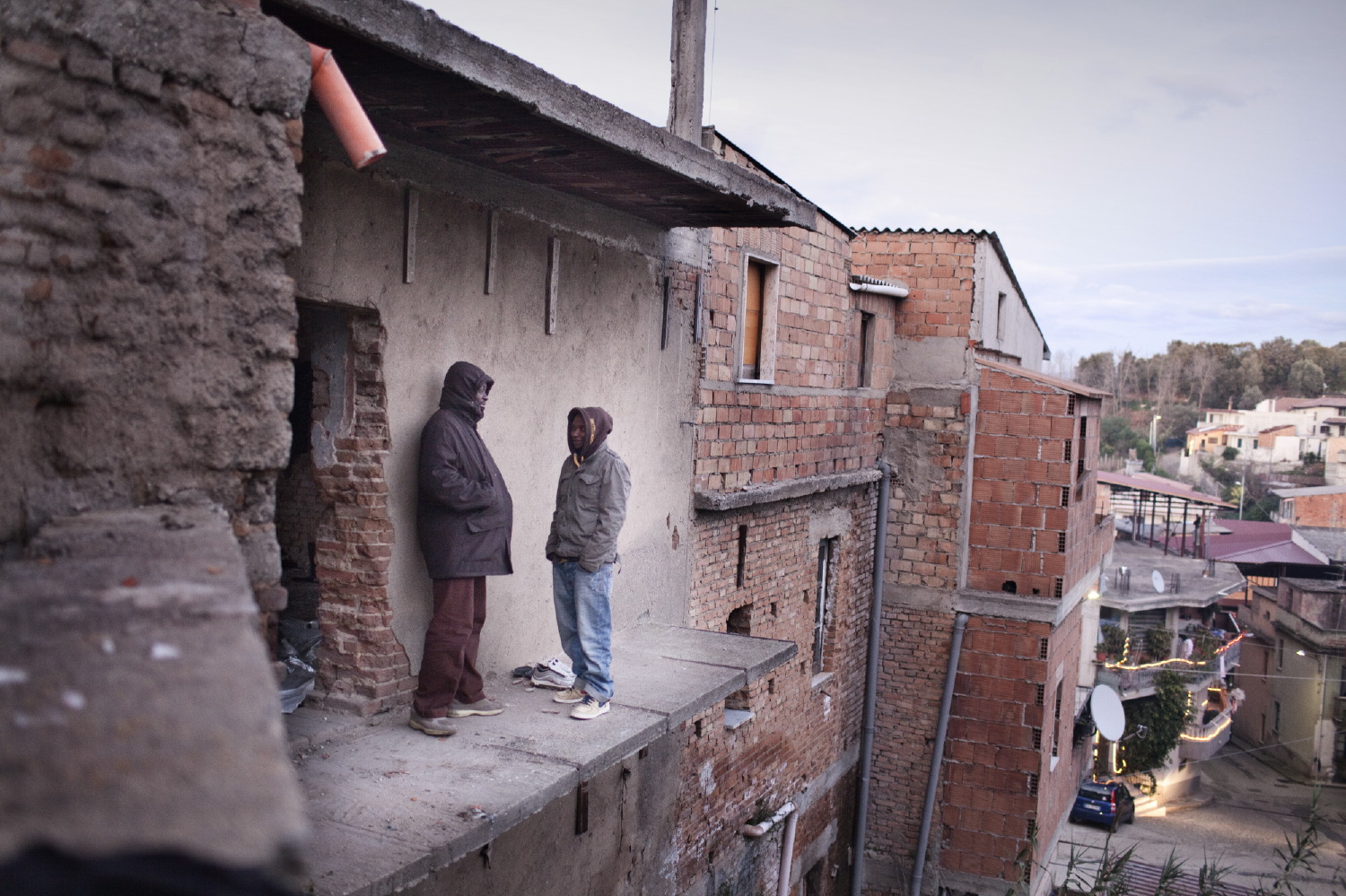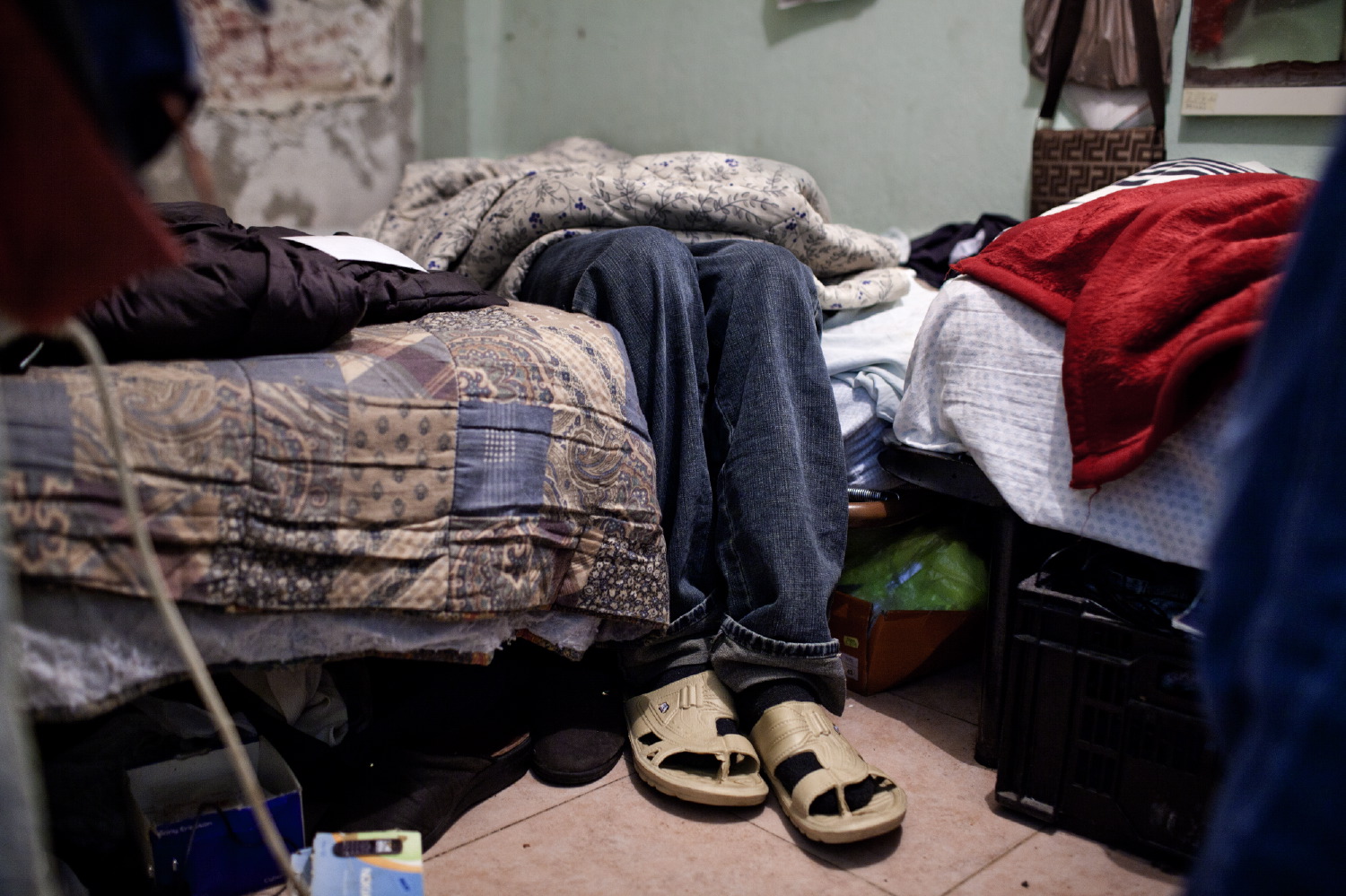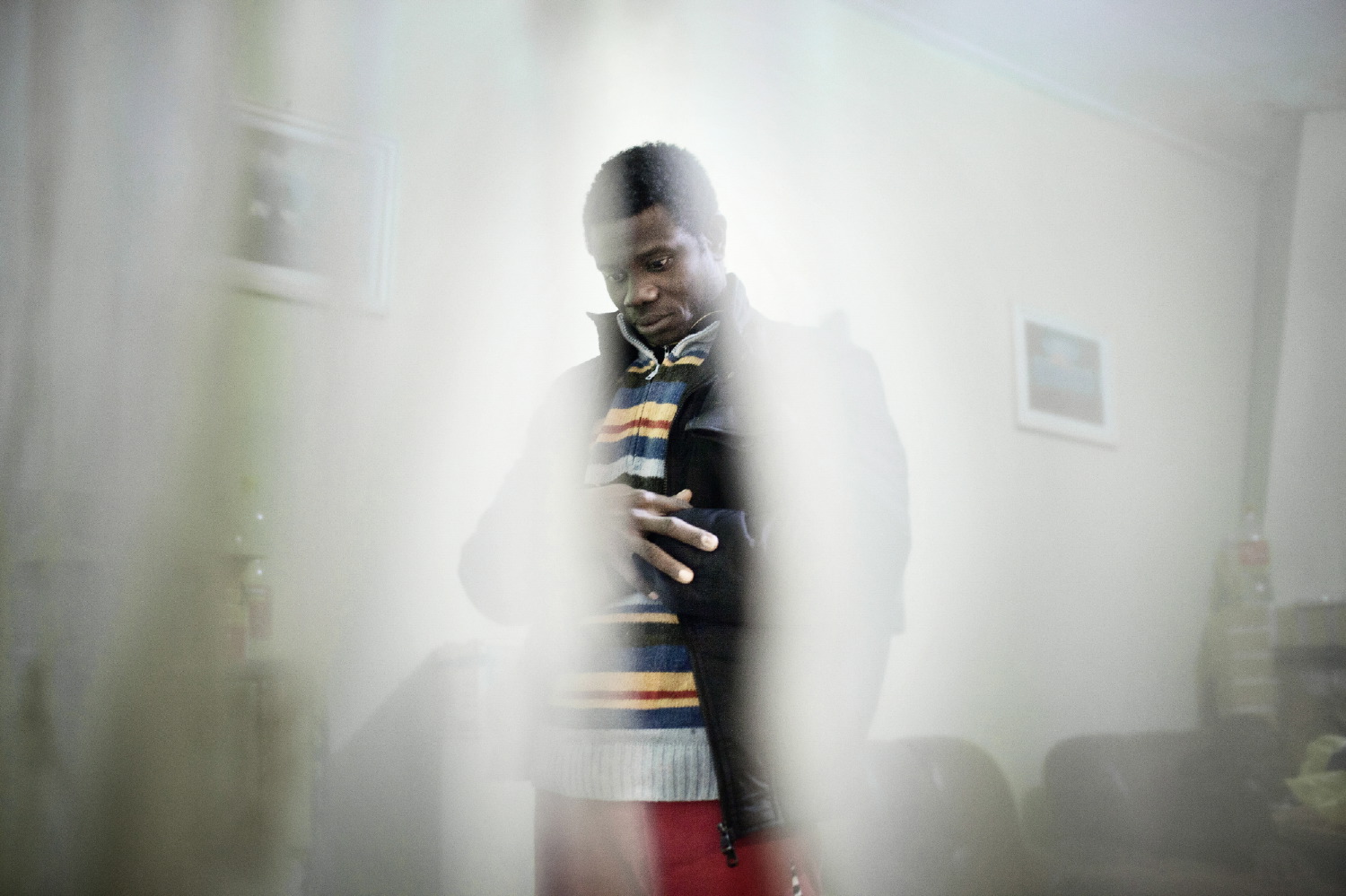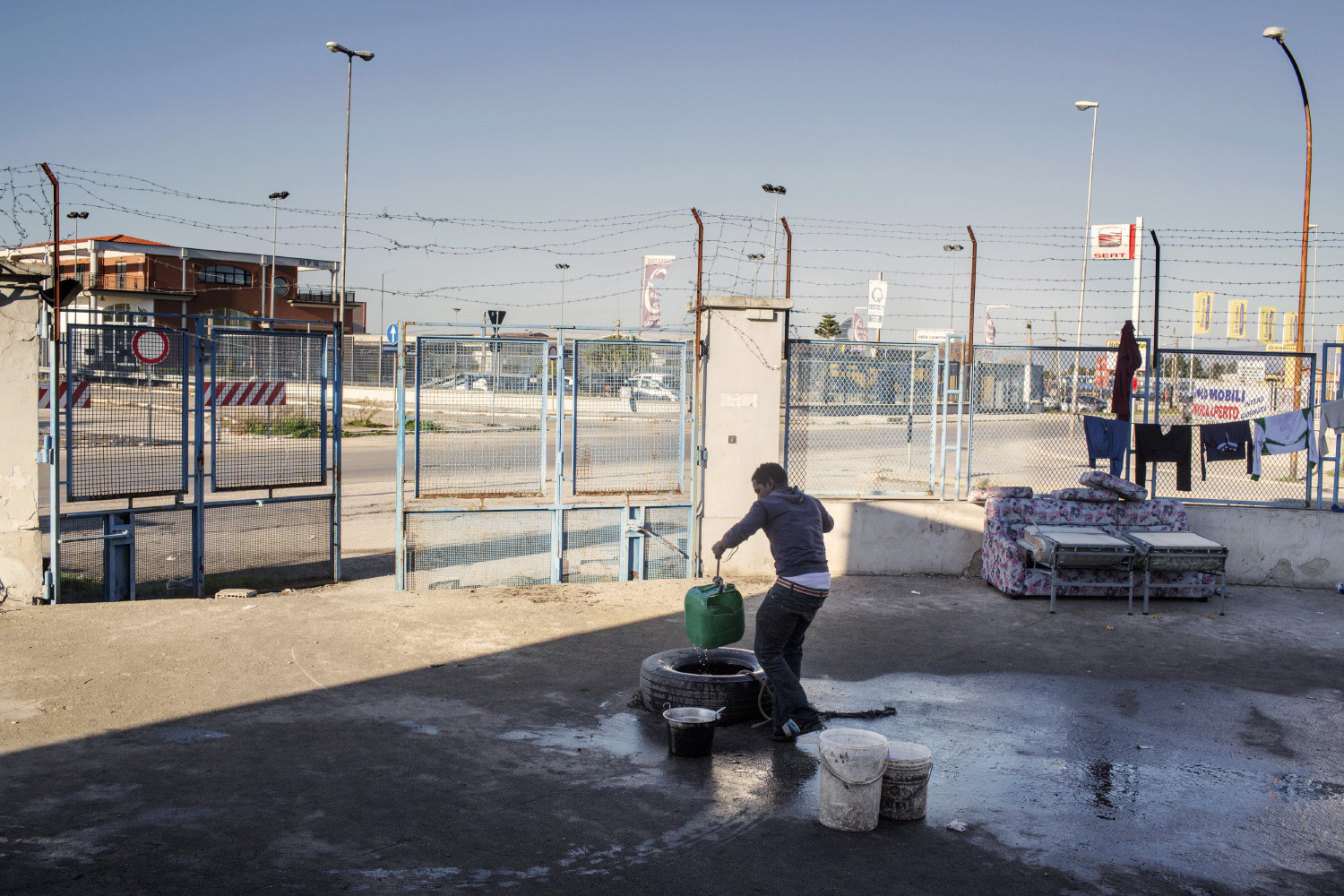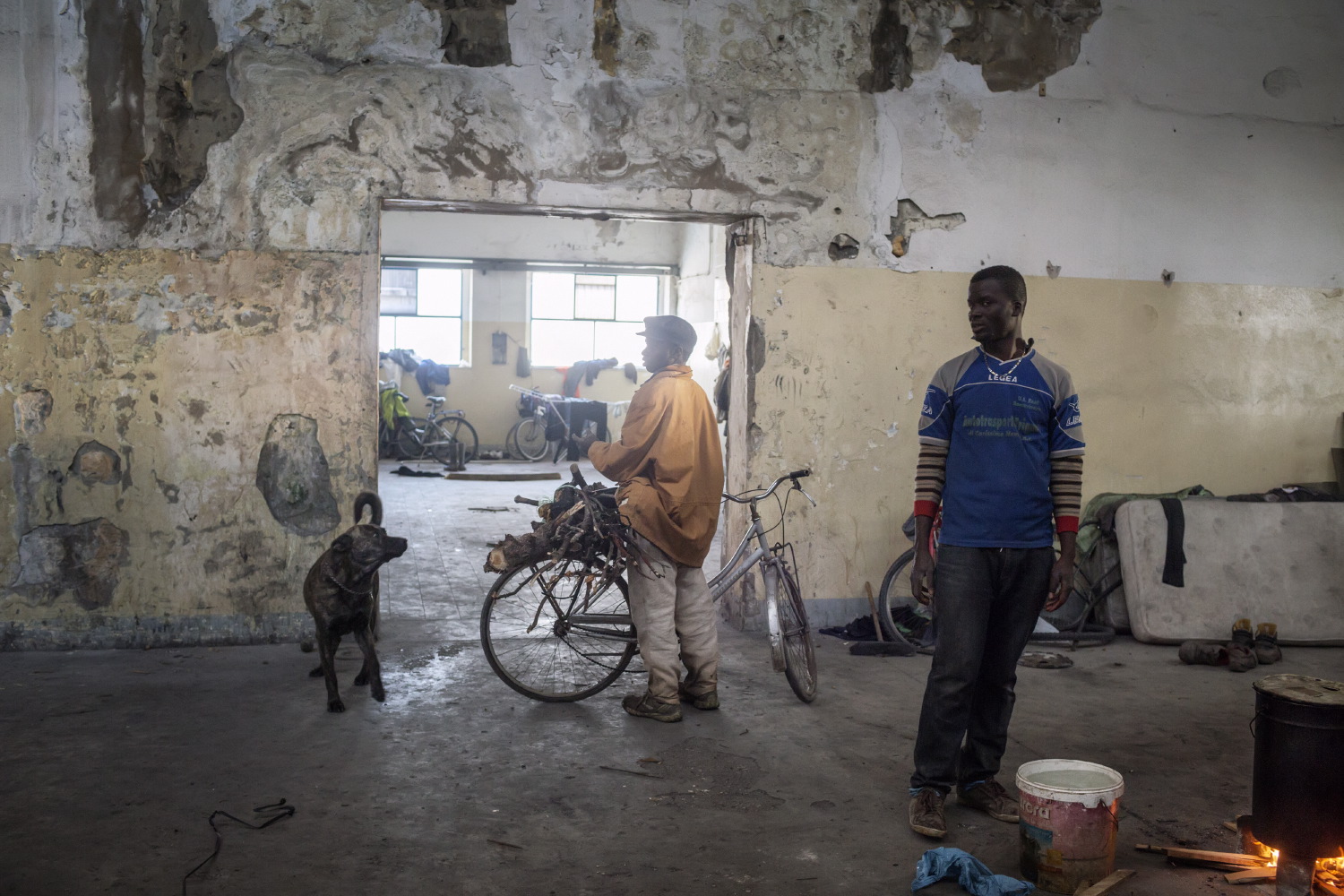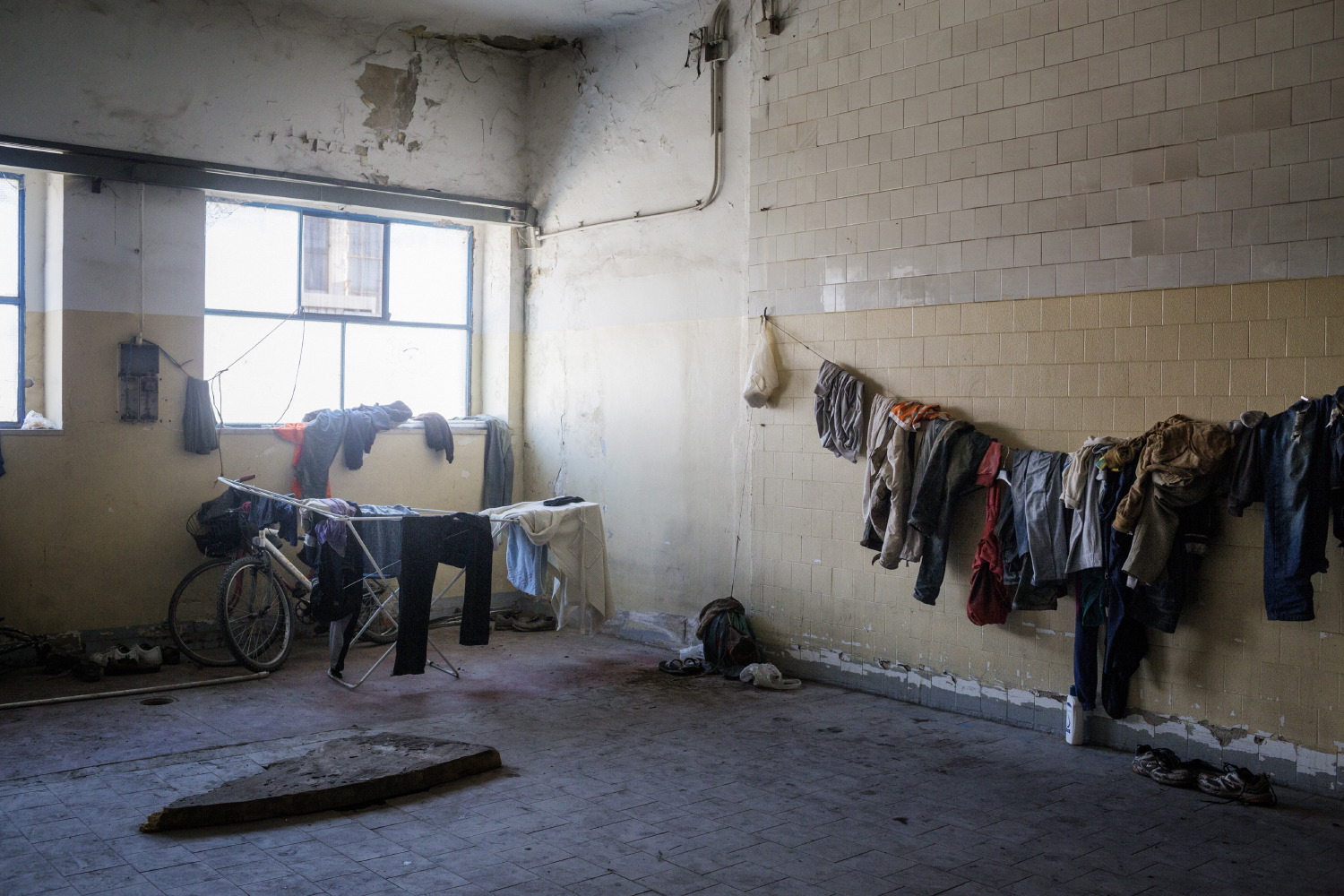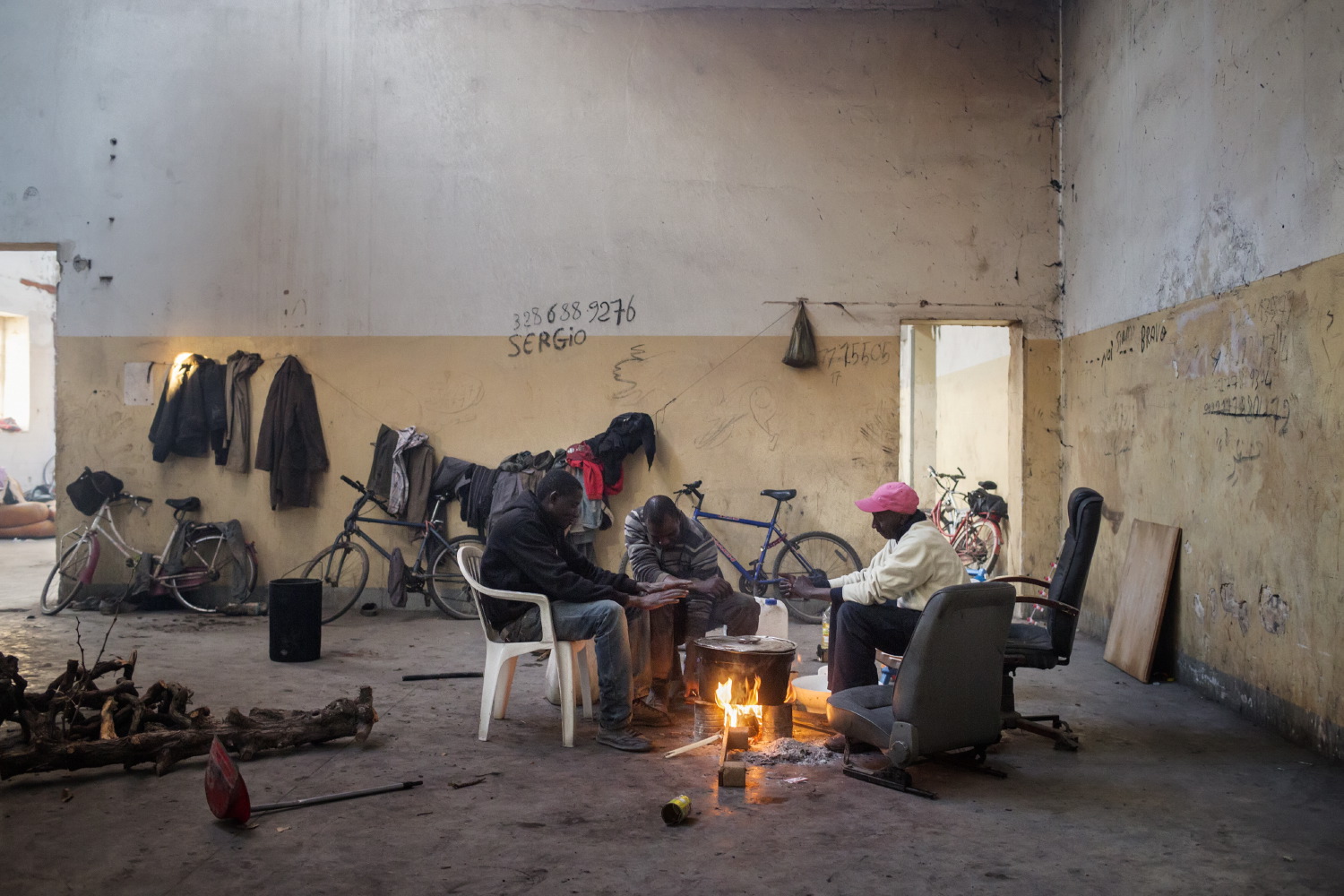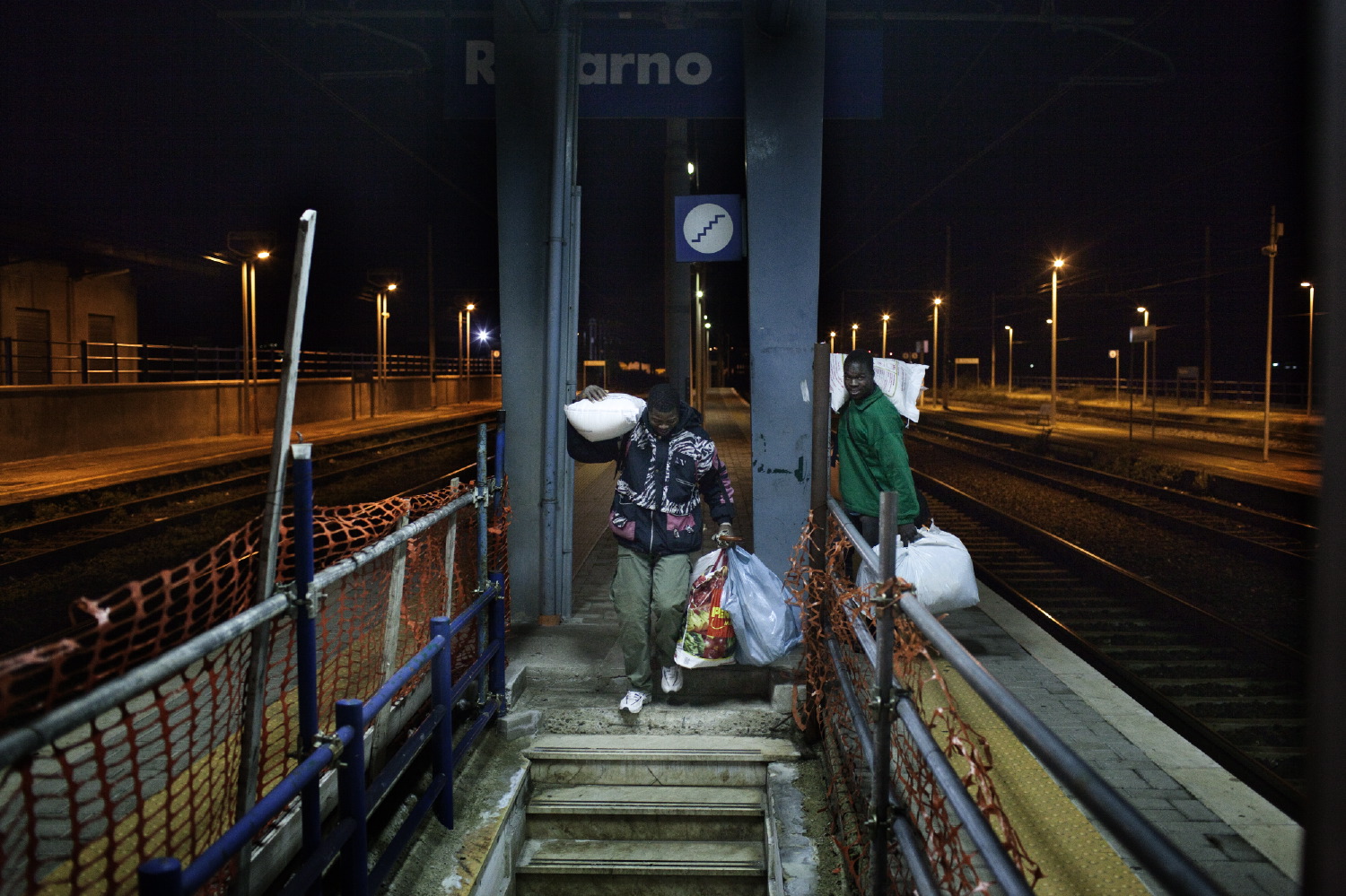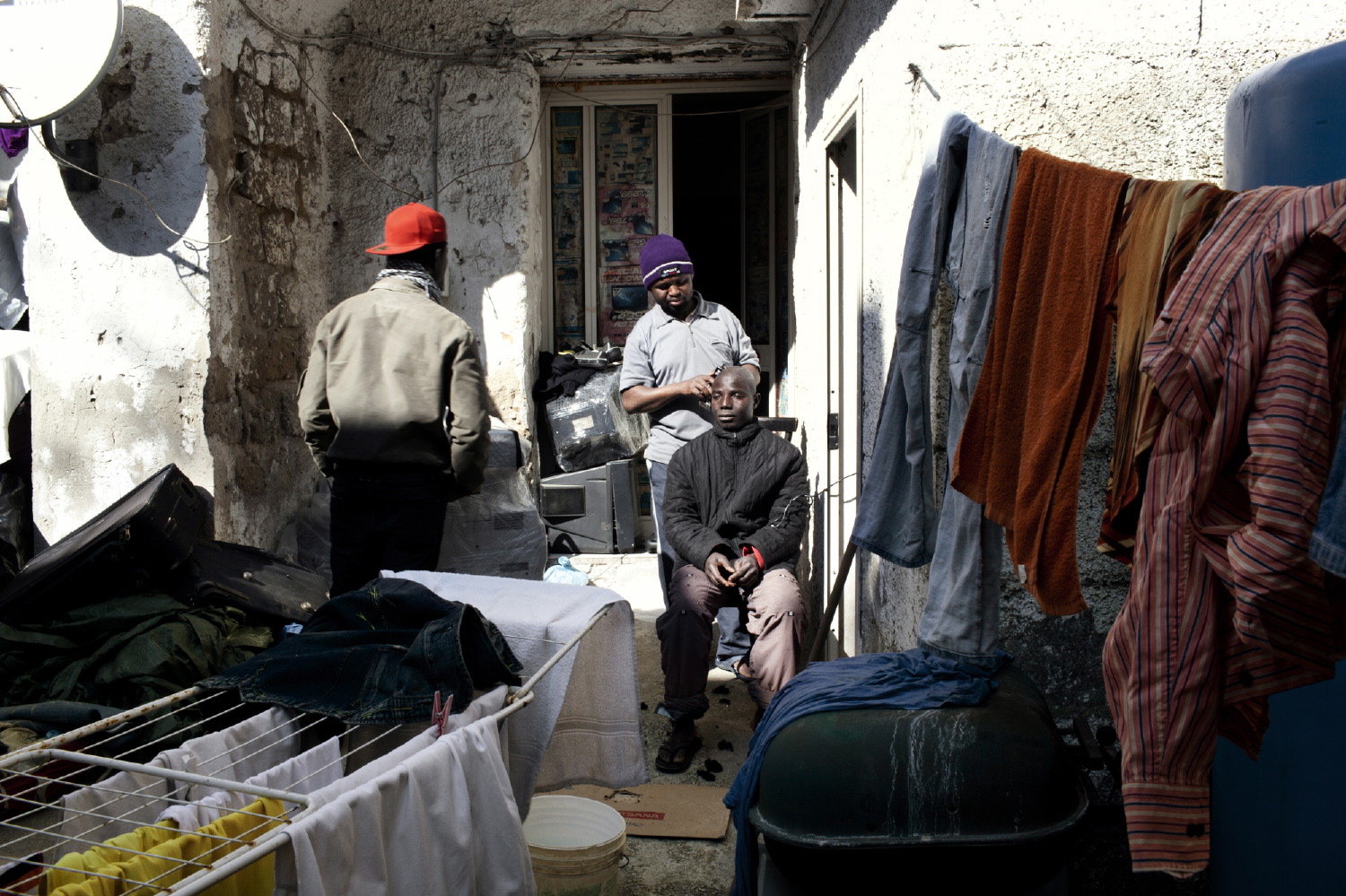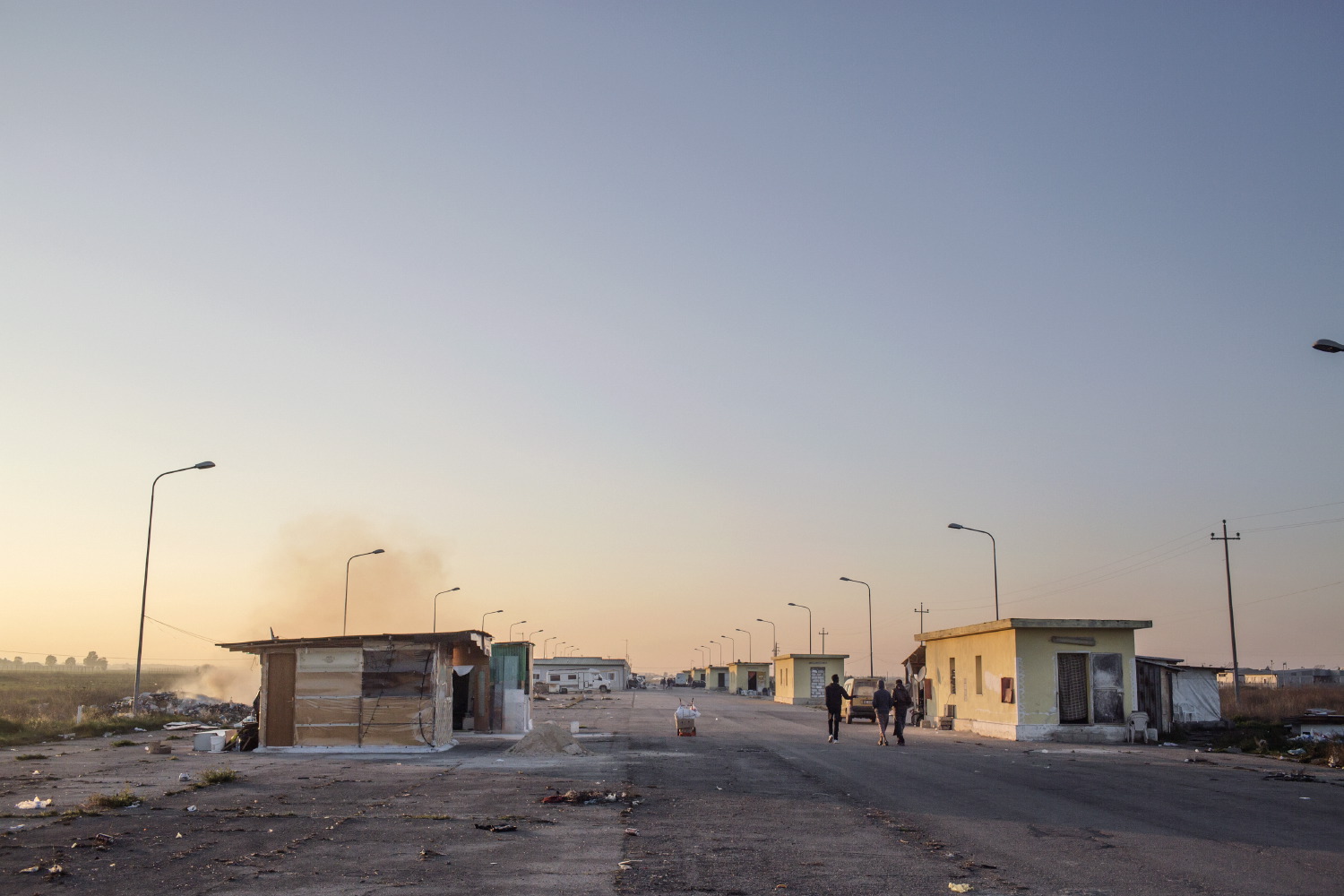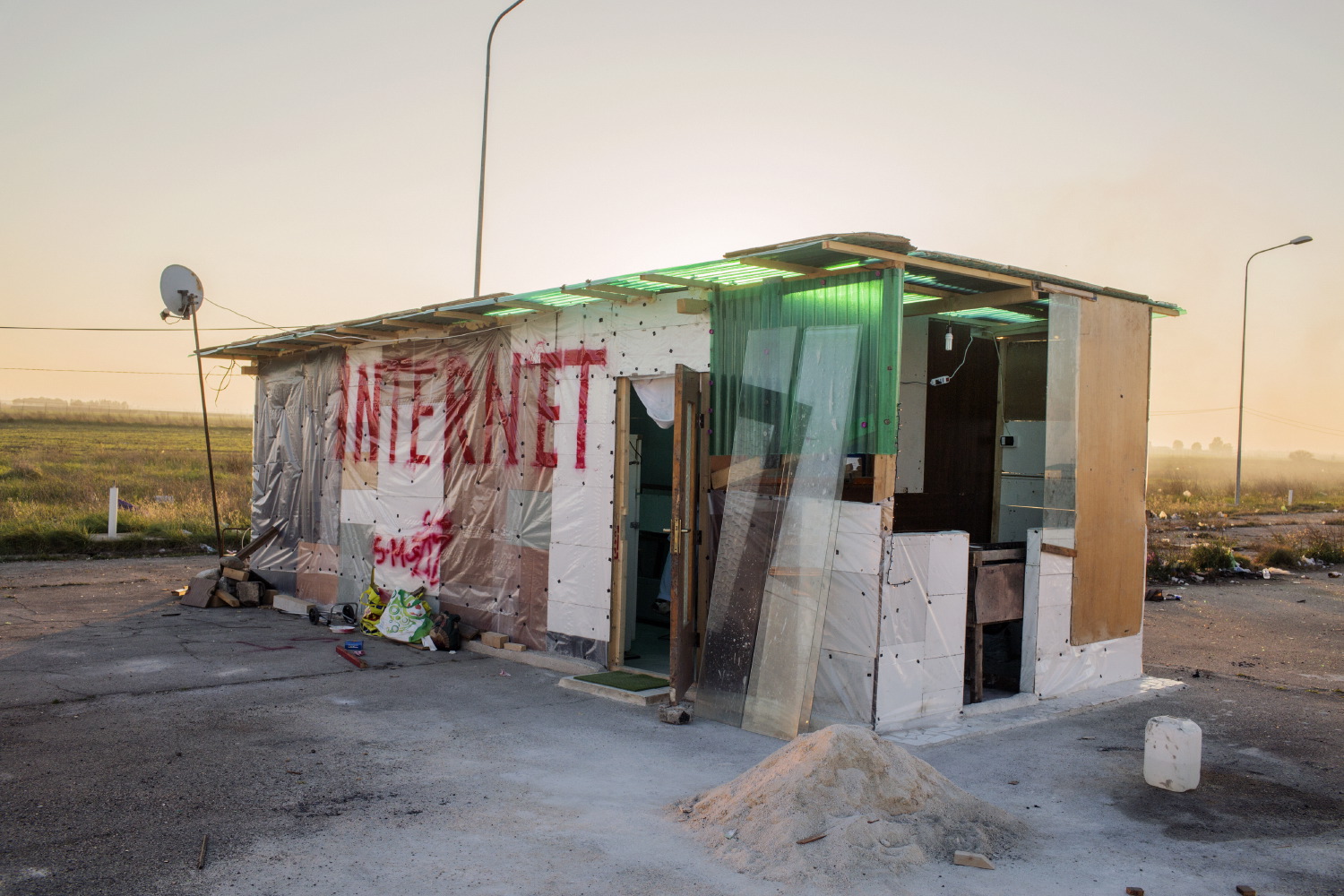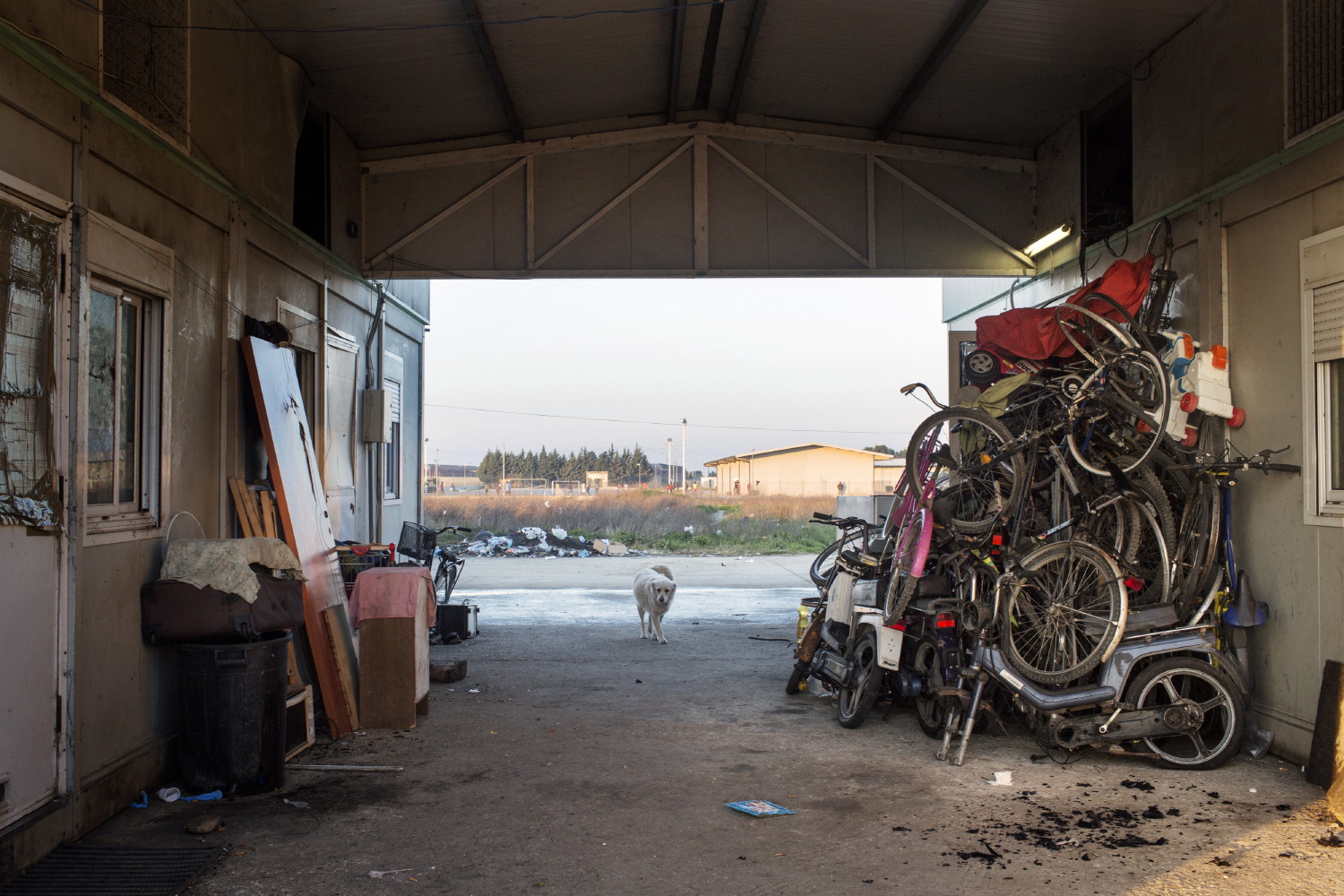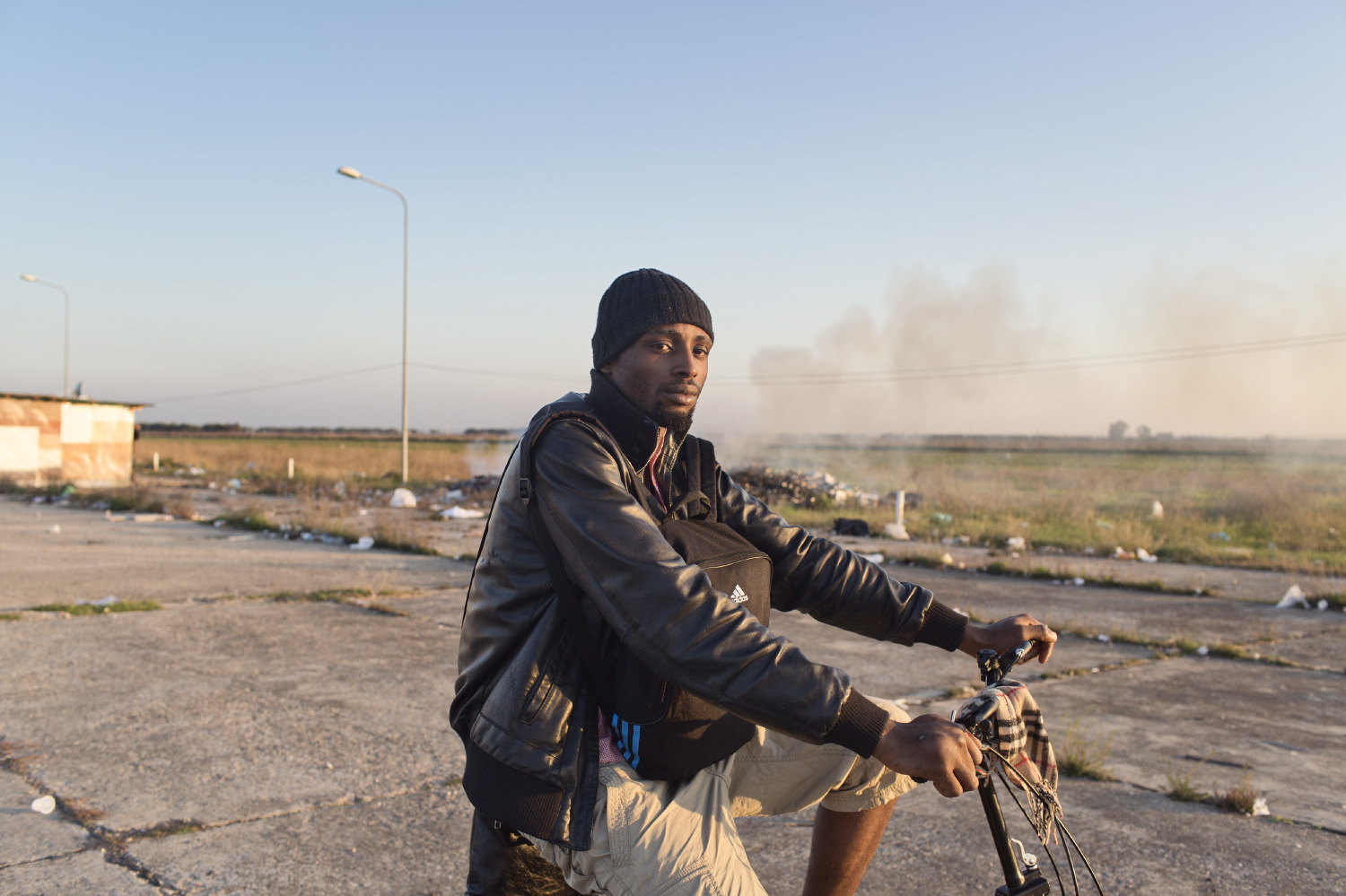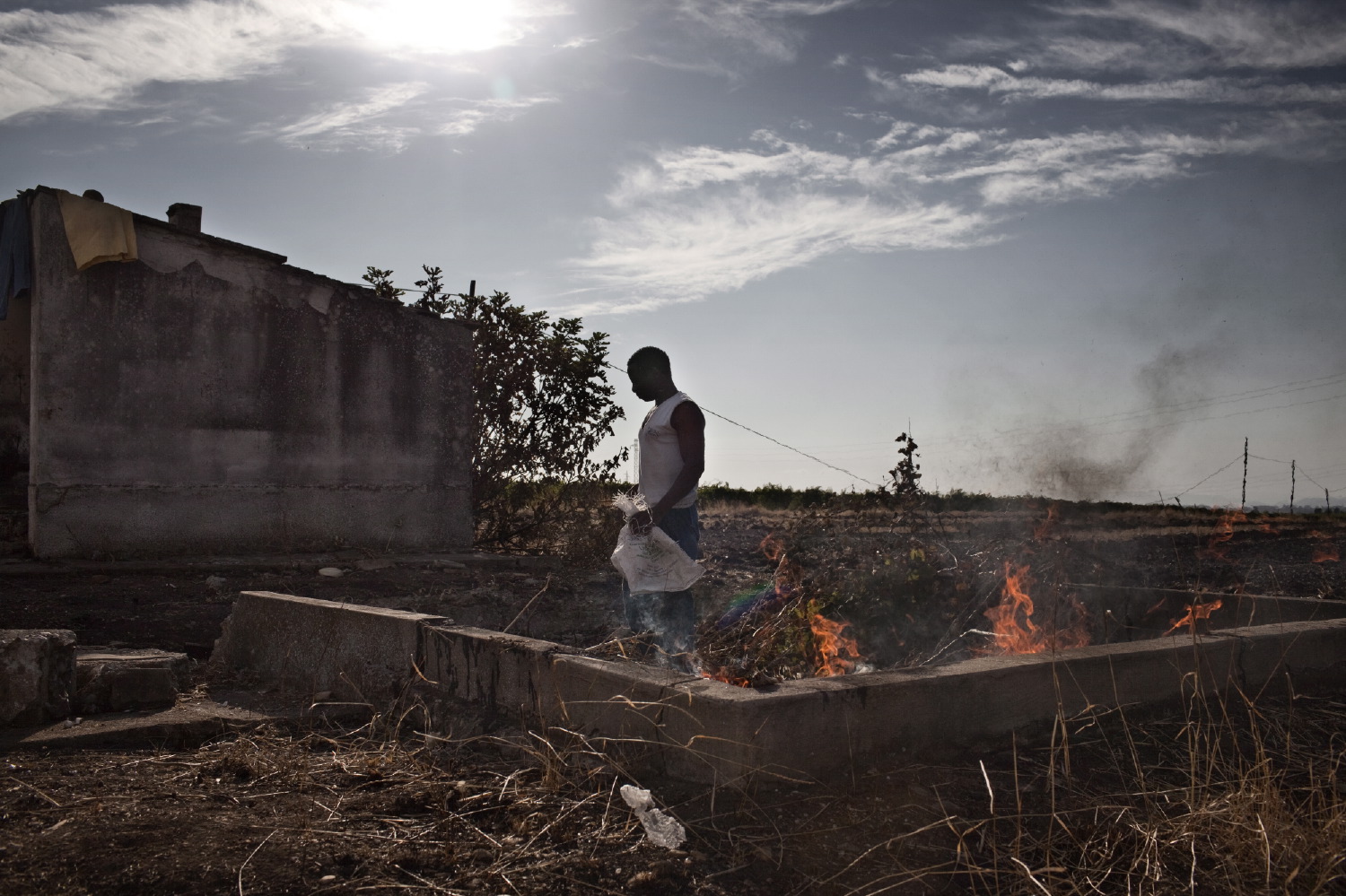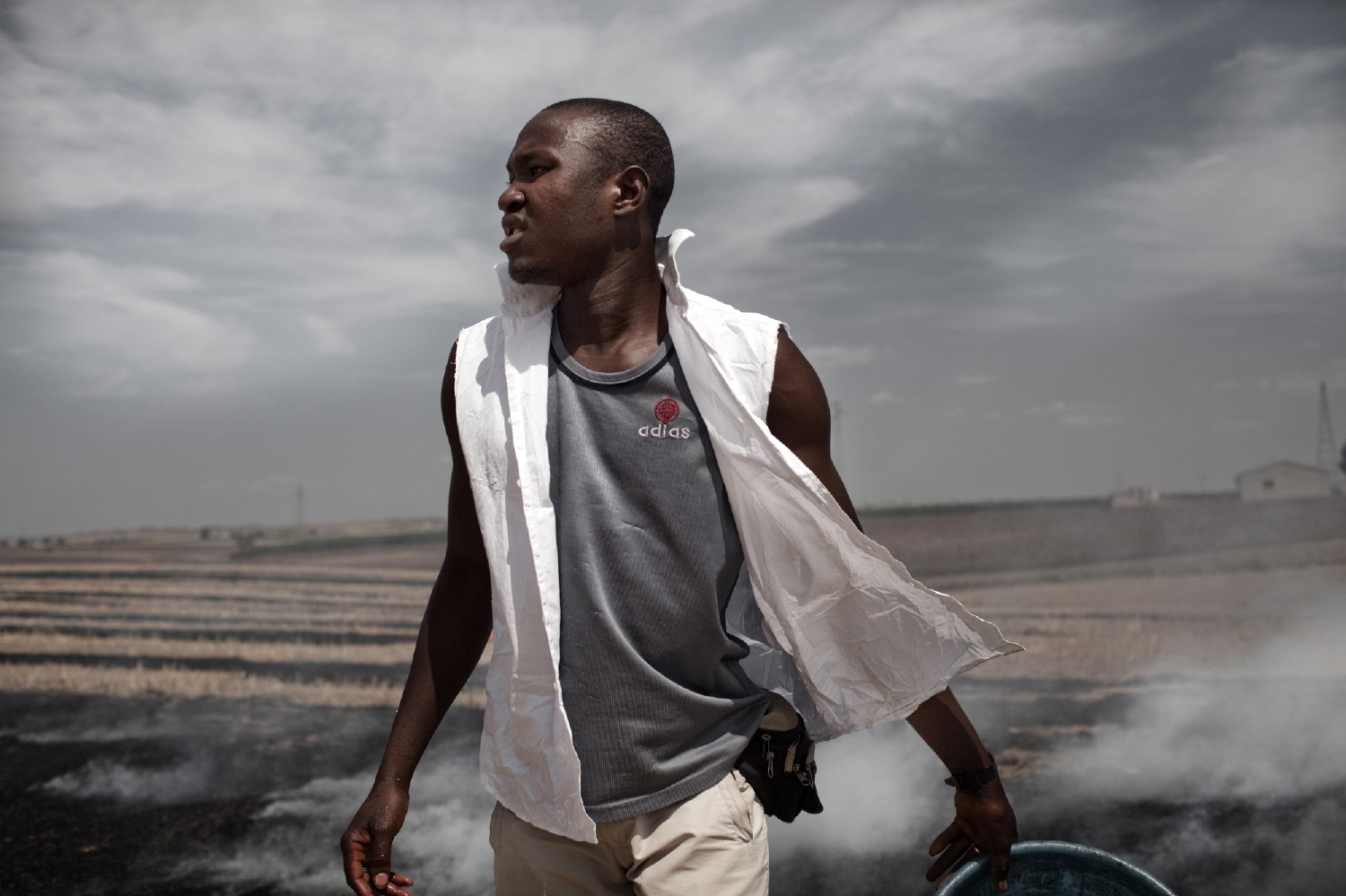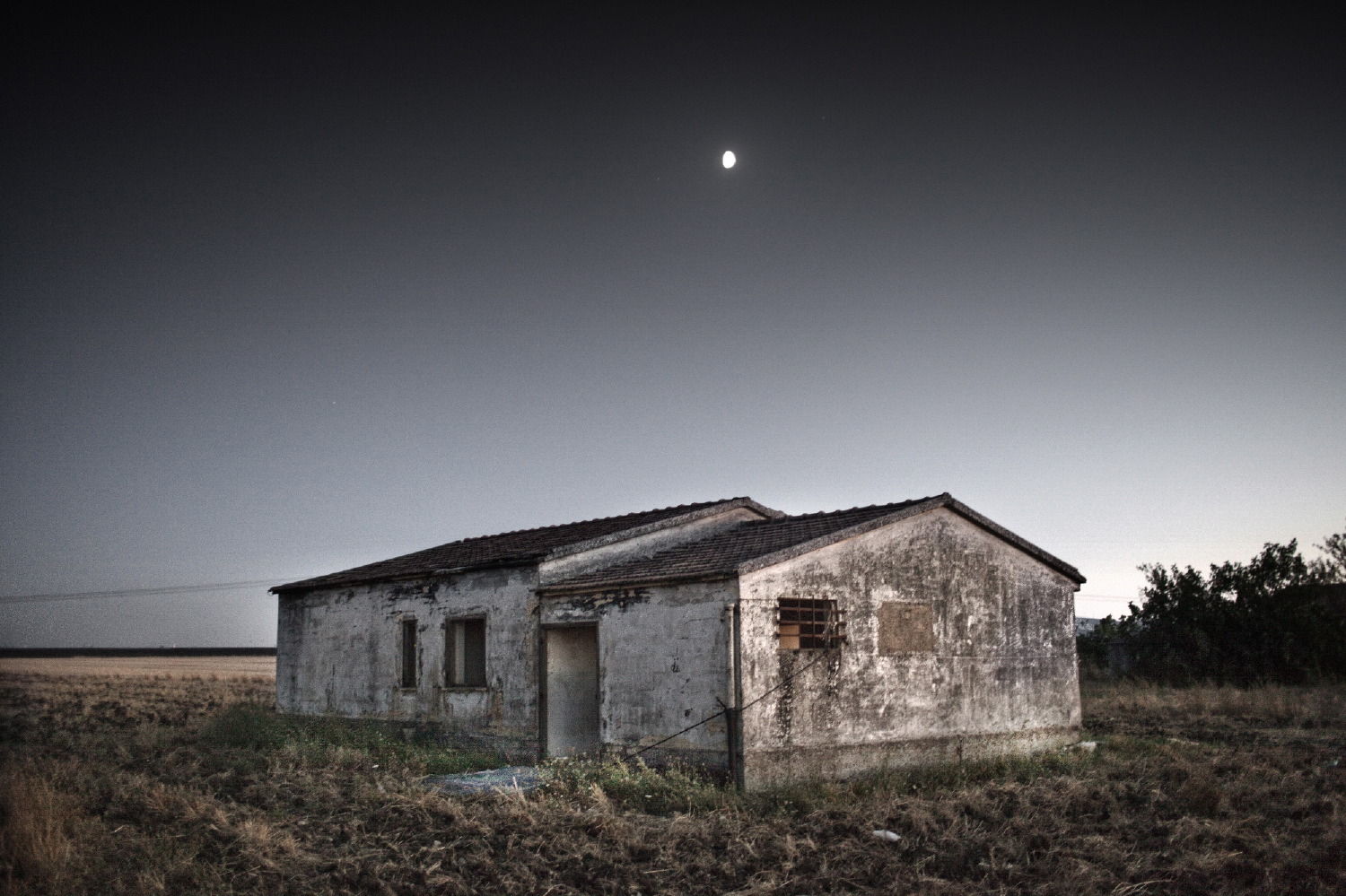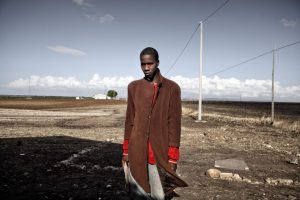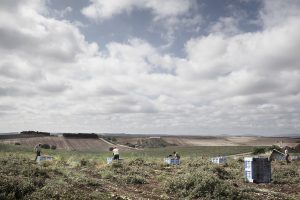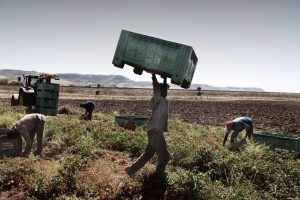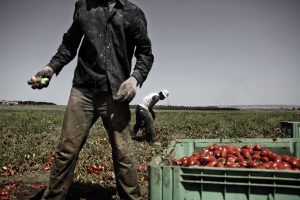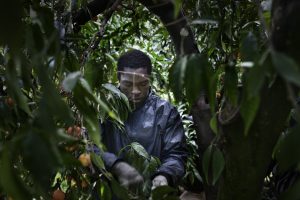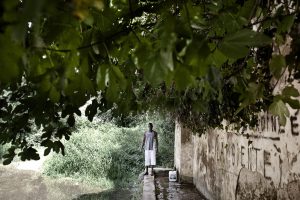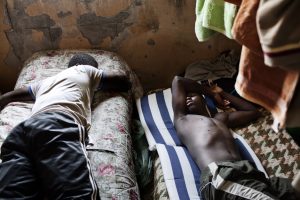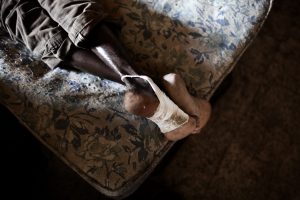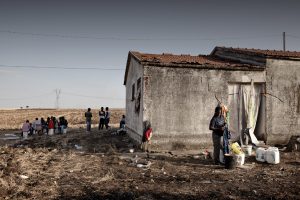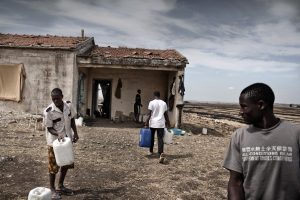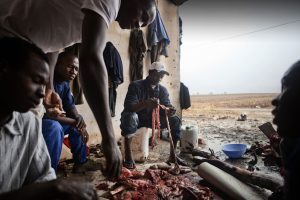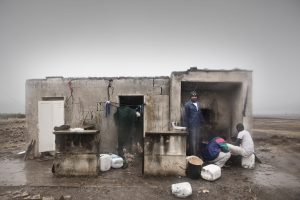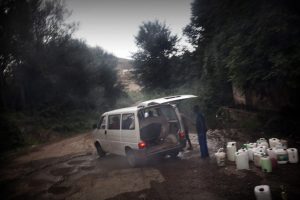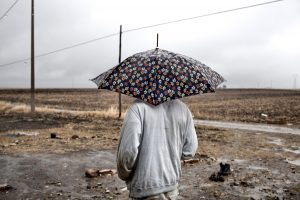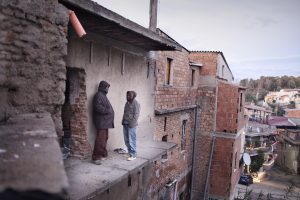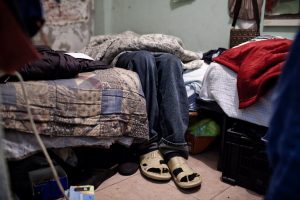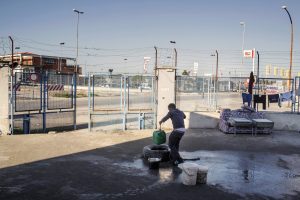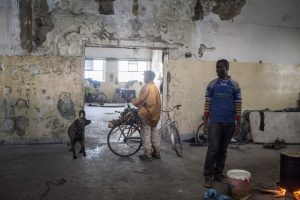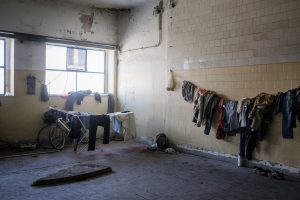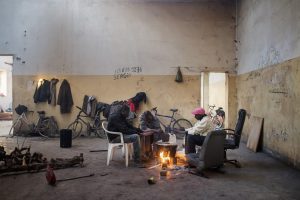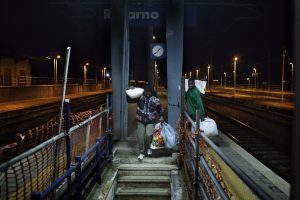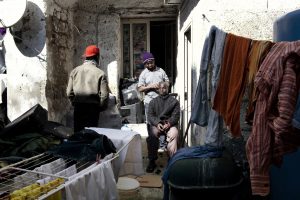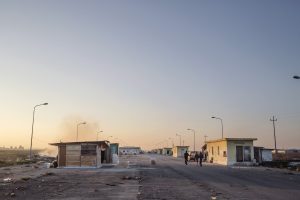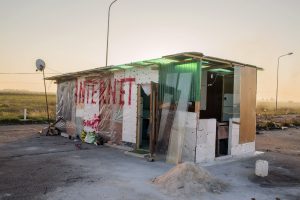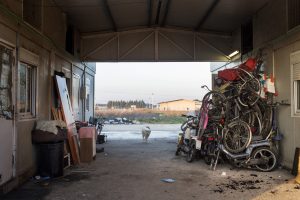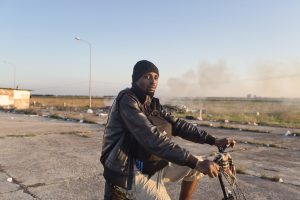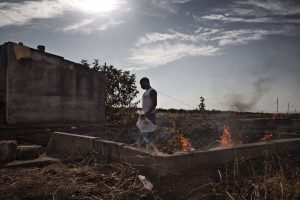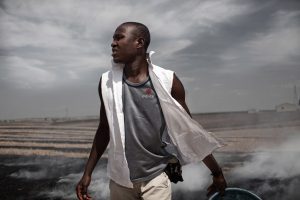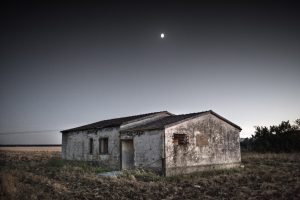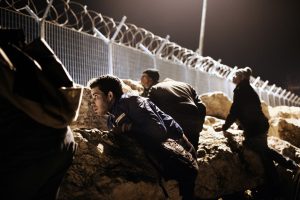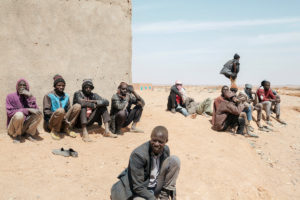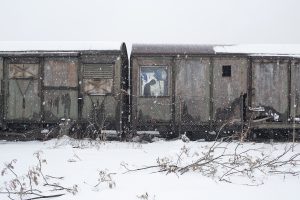The project “Migrant Workers Journey” describes and documents the social and human working conditions of migrants employed illegally in Italy in the agricultural sector, mainly as seasonal worker during the harvesting season.
It’s a journey that lasts one year. Throughout Italy, and in the south of the Italian peninsula mainly, moving on the strength of seasonally farming, migrants seek a little bit of money which could be enough to survive. In silence, and hiding. Without rights, alternatives and the chance to choose their own destiny, in conditions that nobody could define “human”. Everything began after the sadly famous harvesters’ revolt in Rosarno (Calabria), when the rest of the world suddenly realized that one of our most popular fruits, the mandarin, arrives as a result of slave-like conditions endured by thousands of migrant workers in Italy.
At that time, I just wanted to document what was going on there, but soon it was clear to me that imiting the narration only to Rosarno would mean leaving the main part of the story buried. It was immediately evident that the same thing was happening, for example, for the harvest of an essential ingredient in many Italian recipes (just think of most pasta sauces or pizza ingredients), a classic element of Italian agriculture: tomatoes.
I felt the need to go into depth. I followed the migrants and their migrations over the course of a year, following each part of the harvest of agricultural products such as tomatoes and citrus fruits in several regions, such as Ba- silicata, Calabria and Puglia. In the winter, they live in small crowded apart- ments rented in the area between Afragola and Casal di Principe, a Camor- ra stronghold. During the season, which lasts six or even seven months every year, they move for miles from East to West and from the Southern to Northern Italy in a sort of pilgrimage. An army of nameless people that moves dedicating their lives to the harvesting cycle. Most of them, almost all of them actually (most of these workers come from central and northern Africa), are Muslims.
This means that they have to work during Ramadan, without food or water during their whole working day. These illegal migrant workers live or, better, survive in empty houses without electricity or water and in extreme poverty. Home is often a derelict building without power or running water. As many as twentyfive people can be crammed into a derelict house, often without sanitation. They don’t have any rights, any form of assistance, any voice, or any other chance to find a work. And they can work up to 12 hours per day for only 25 euros. They are often referred to as the new slaves, at the mer- cy of corporals, mostly Italians, appointed to control not only their jobs but above all their lives.
According to Caritas, in Italy there are almost 4,900,000 migrants. At least 700,000 of them are employed illegally. Statistics provided by the Nation- al Institute of Agricultural Economics (INEA) refer to 102,000 people em- ployed as workers in the agricultural sector, but the “illegals” are not includ- ed in the official count.
